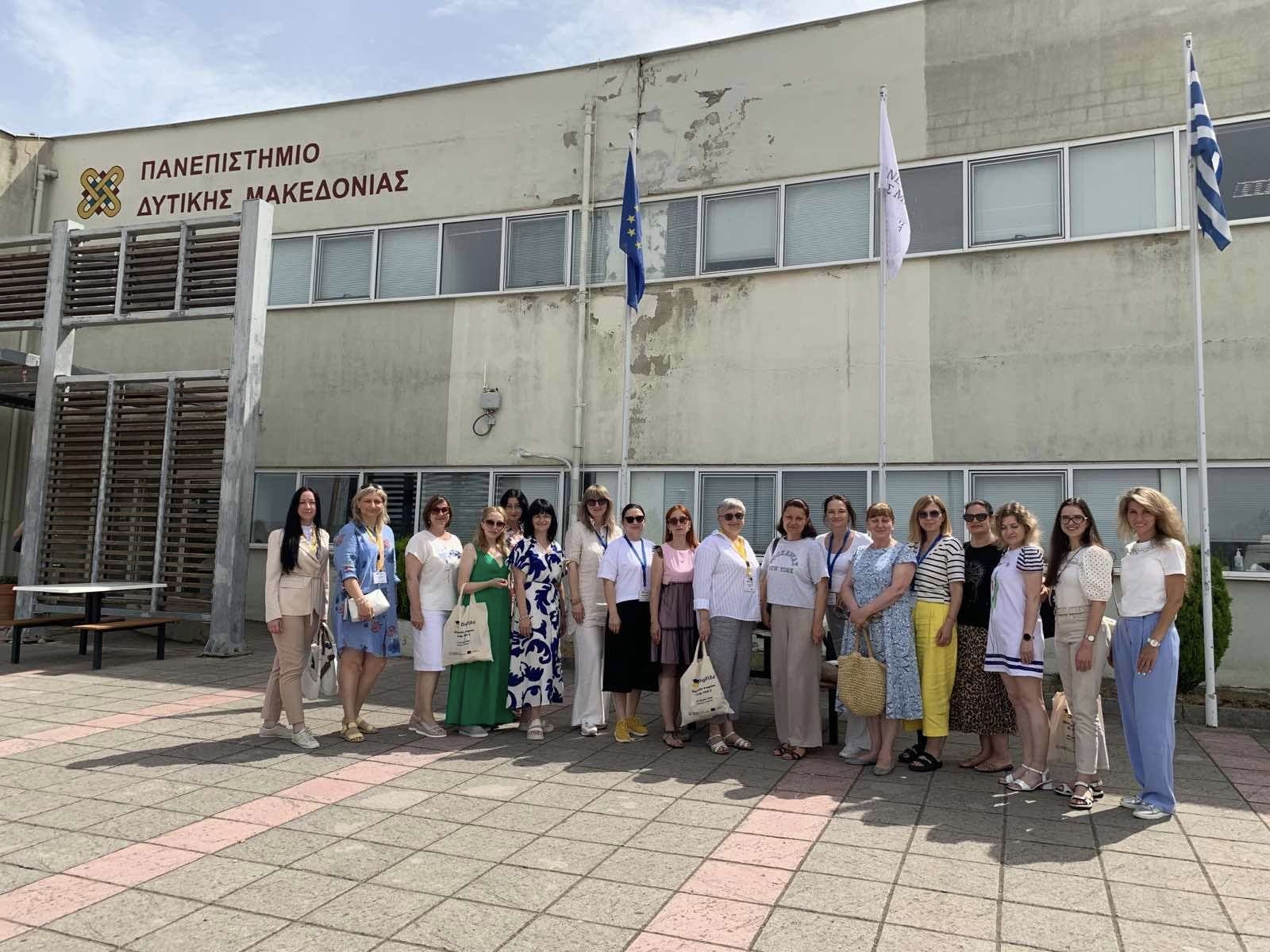From June 24 to 28, the second educational visit of the DigiFLEd project took place to European partners, the University of Western Macedonia (Kastoria, Greece). The GIIM team was represented by the project manager, Assoc. Marina Shkuropat and members of the working group Assoc. Victoria Kontsur and Assoc. Iryna Sklyar.
Day 1.
The participants of the study visit were greeted by the vice-rector for international relations, global interaction and student affairs Eleni Griva. Domna Mikhail, manager of the project team from the University of Western Macedonia, introduced the guests to the program of the visit and inspired everyone to achieve effective results.
Lecture Alexandros Kleftodimos "Creating multimedia content for education and theory and principles of multimedia learning" laid the foundation for understanding the principles of multimedia learning. The participants got acquainted with the theories of effective use of multimedia in the educational process and acquired the skills of creating interactive presentations using PowerPoint. This knowledge is important for modern teachers who strive to make their classes more interesting and effective.
The project participants also took part in the training "Virtual and augmented reality - creating living books", which was held by Michalis Vrigkas, learned to create living books using virtual and augmented reality technologies.
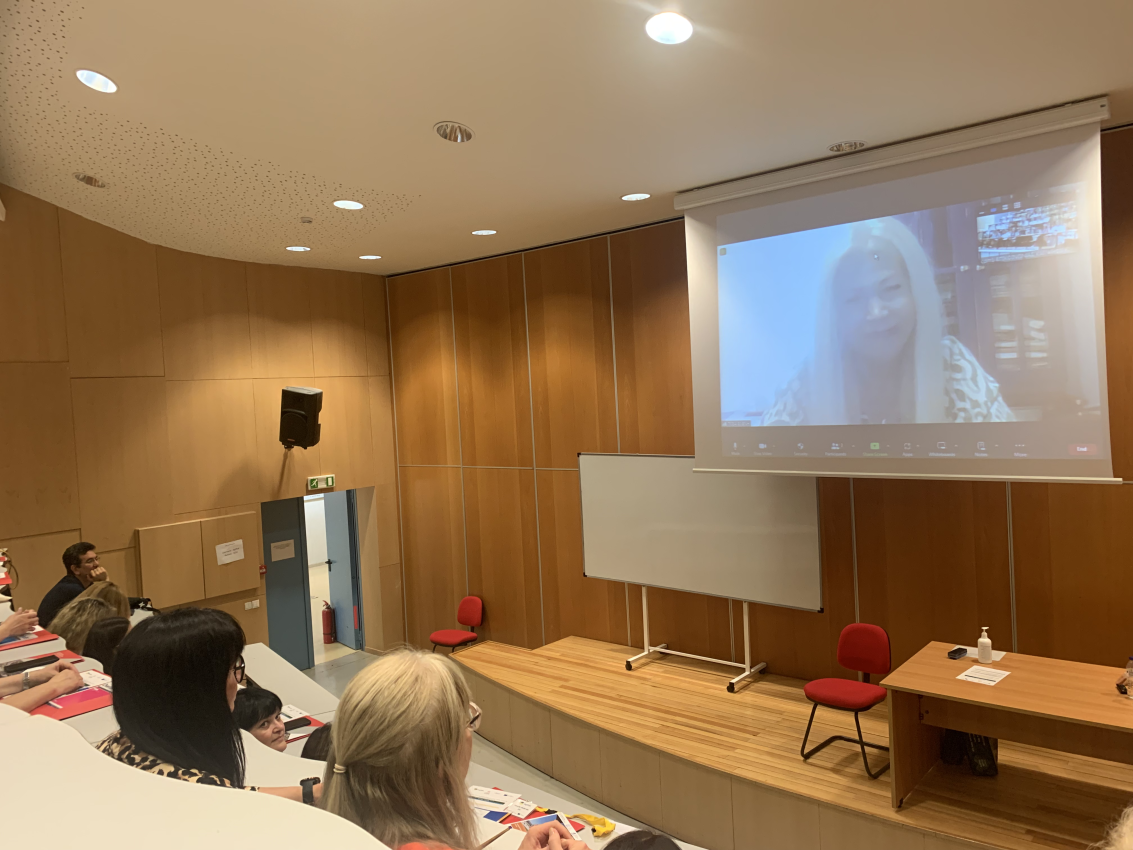
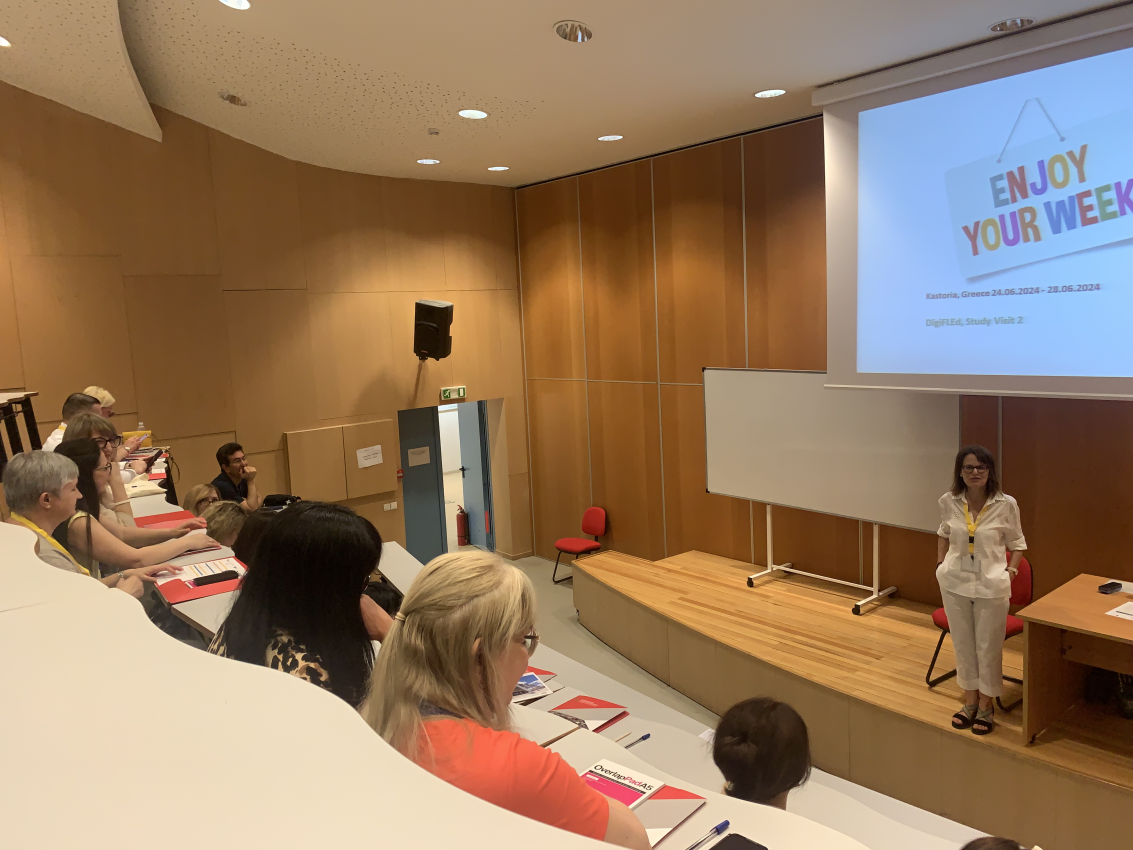
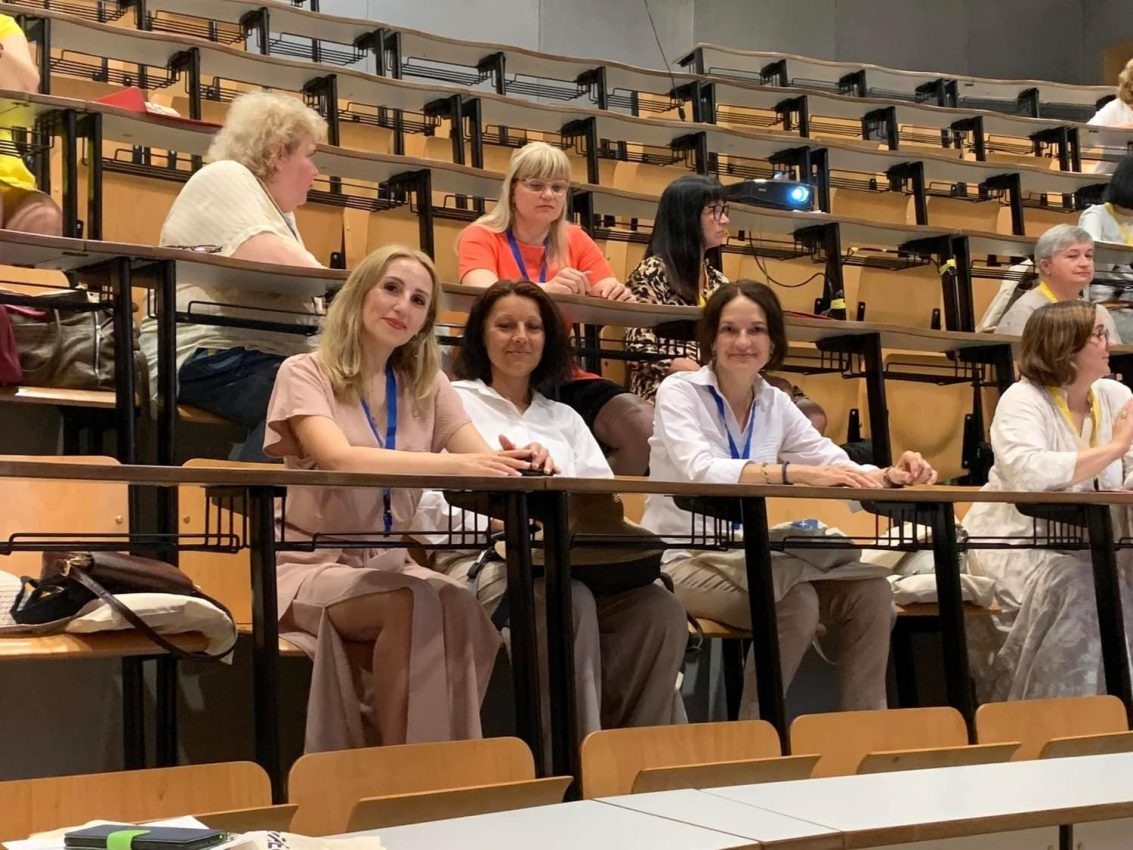
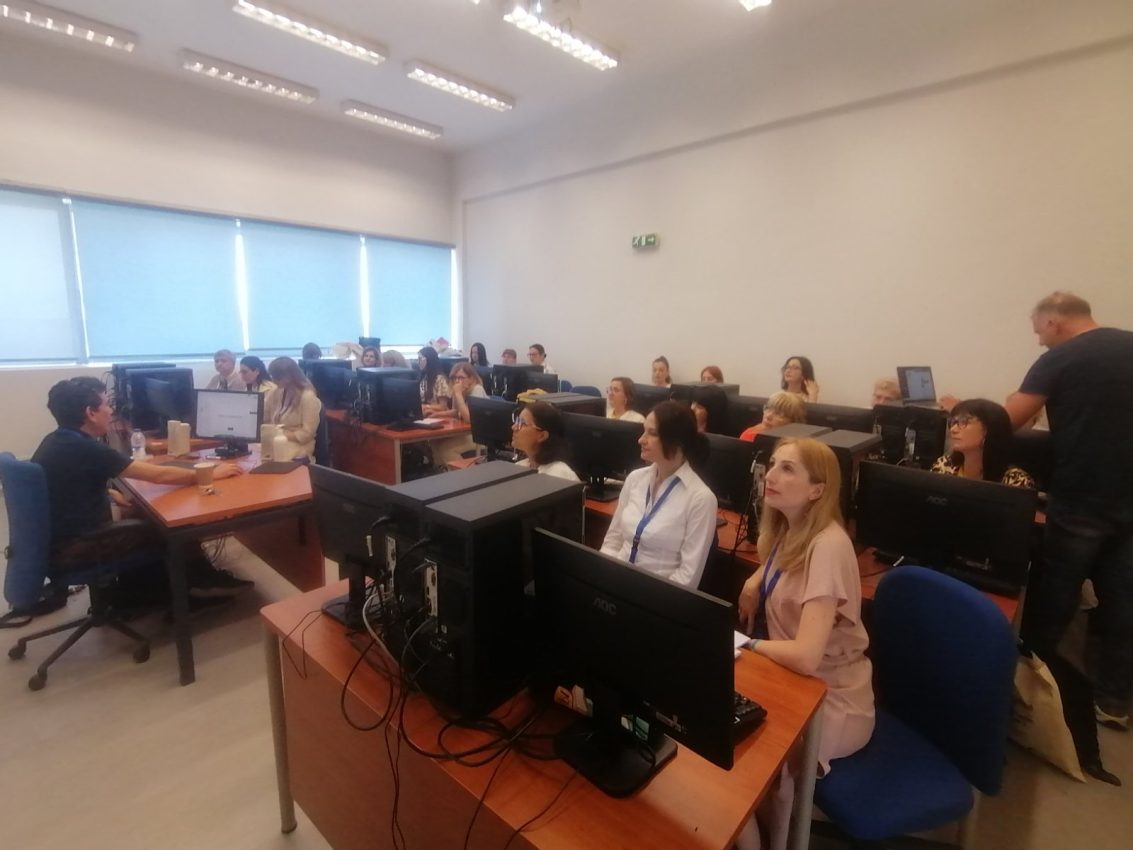
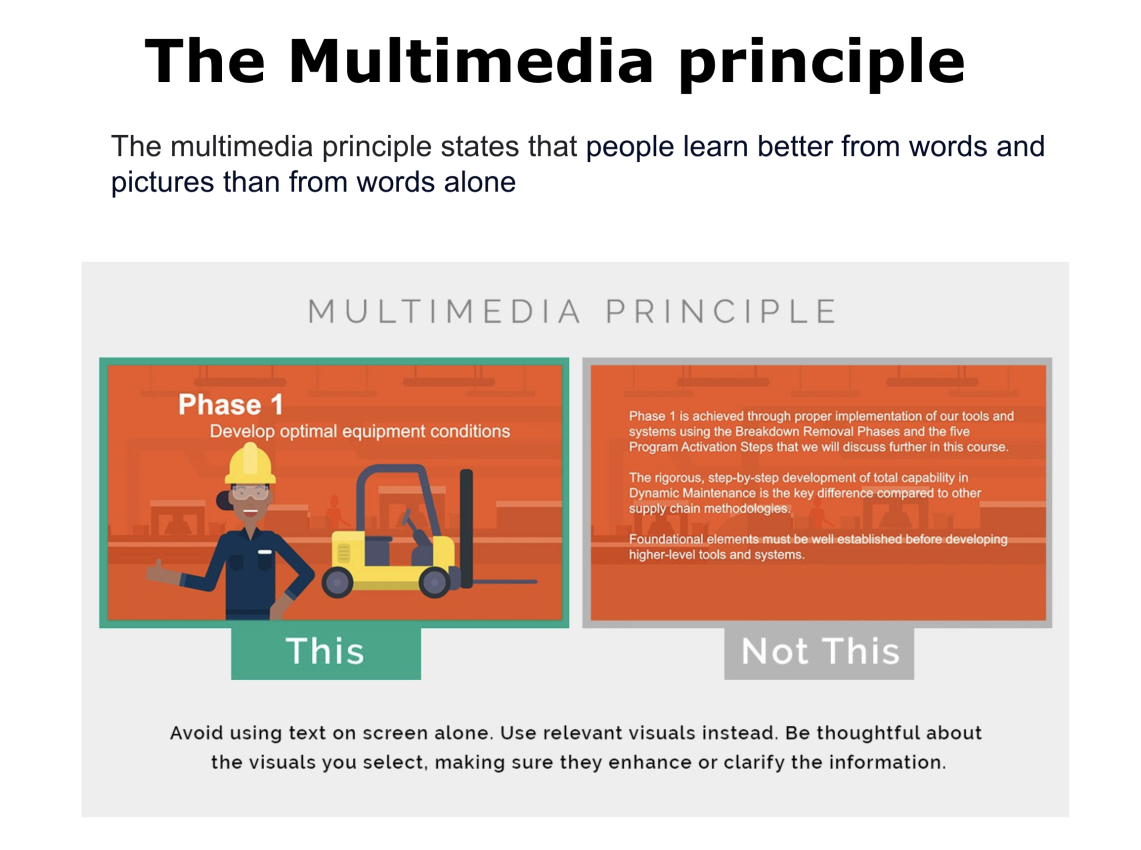
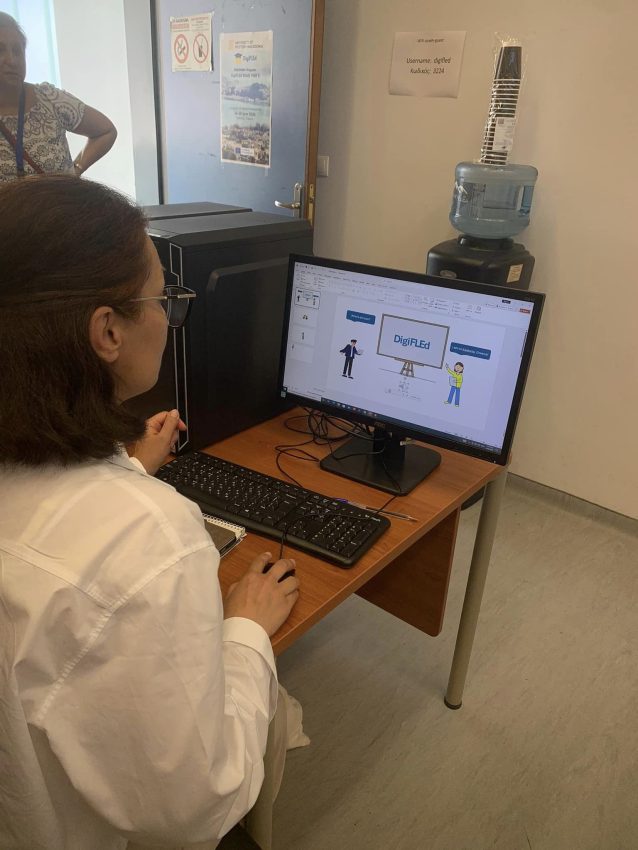
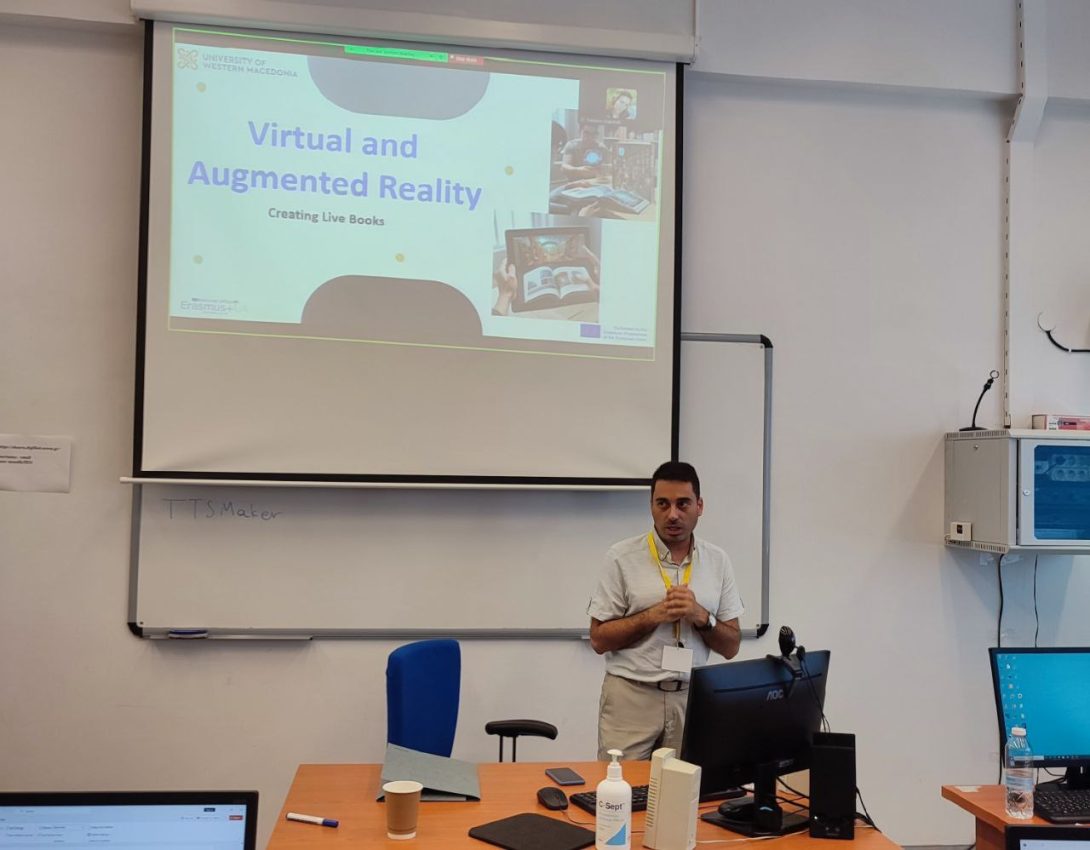
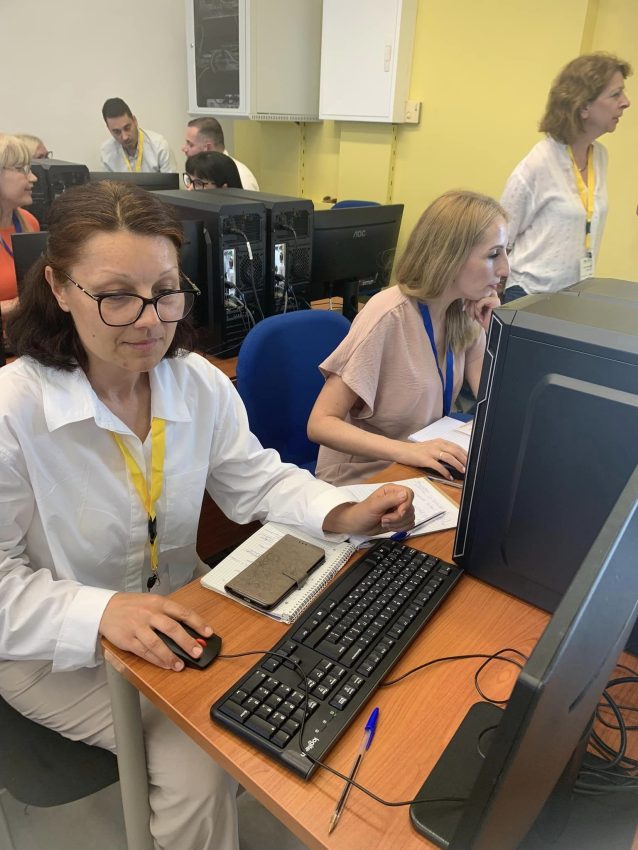
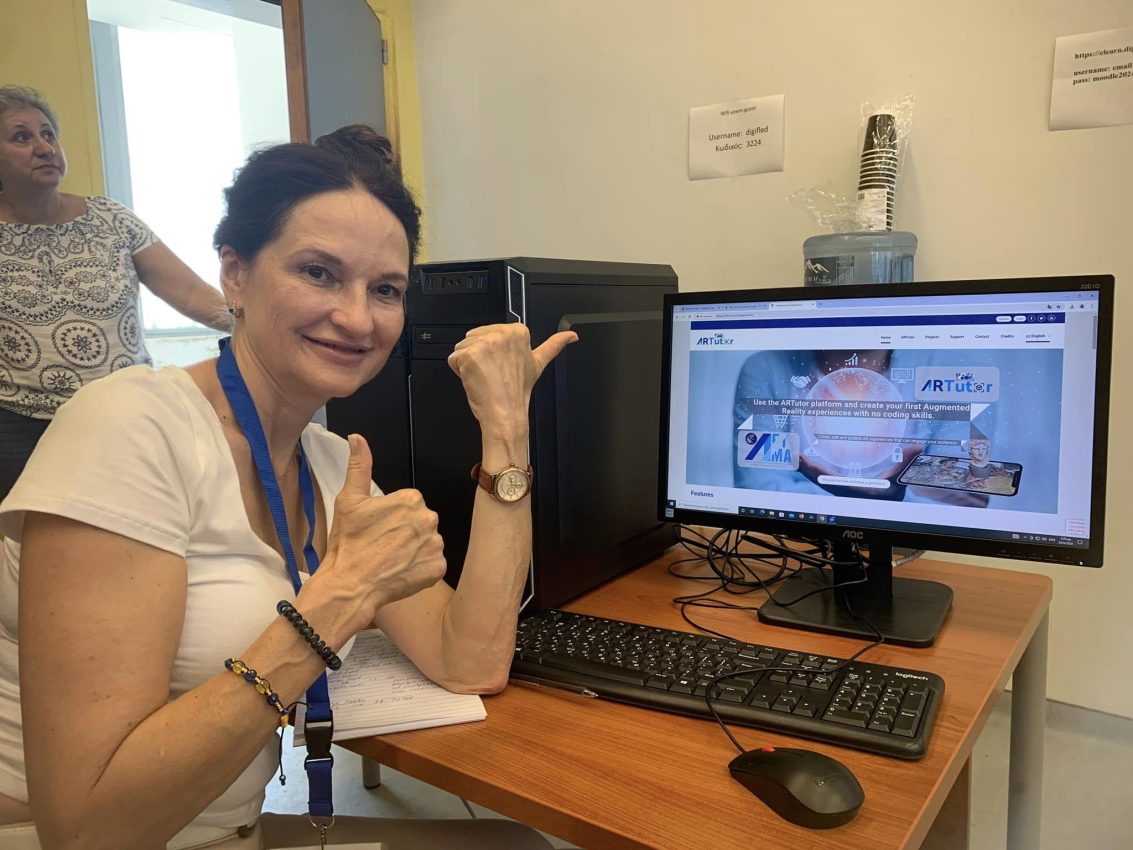
Day 2.
Alexandros Kleftodimos continued to introduce the participants to the creation of multimedia content, interactive tasks using the H5P plugin. This service contains numerous task templates, which allows the teacher to organize both individual and team work at various stages of the lesson.
From the lecture Georgios Lappas "Supporting University Virtual Centers" students learned about the importance of virtual centers for modern education and received advice on their creation and support. This knowledge will help universities improve access to educational resources and improve the quality of education.
Training "Virtual and augmented reality - creation of interactive virtual worlds", which he conducted Michalis Vrigkas, was aimed at practical mastery of the skills of creating elements of the virtual world for studying language and literature.
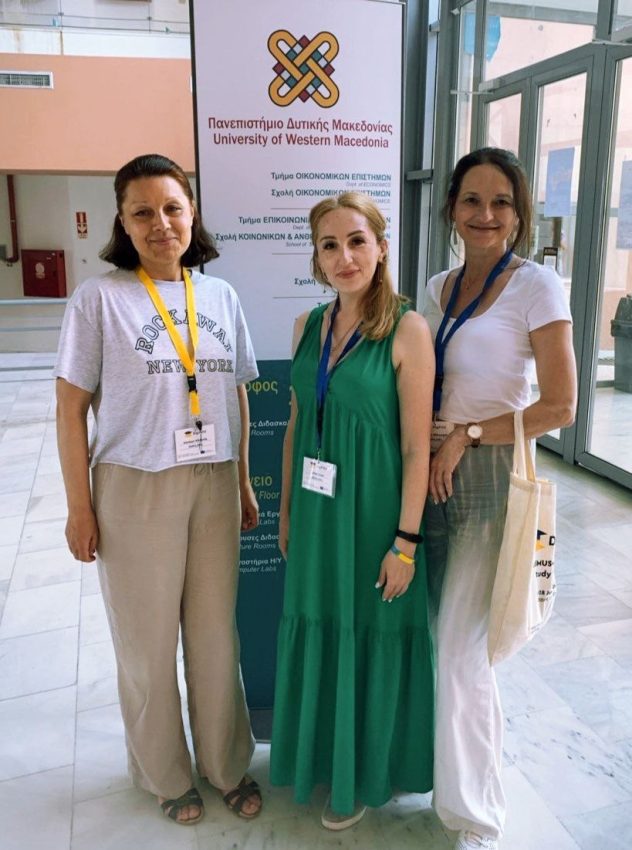
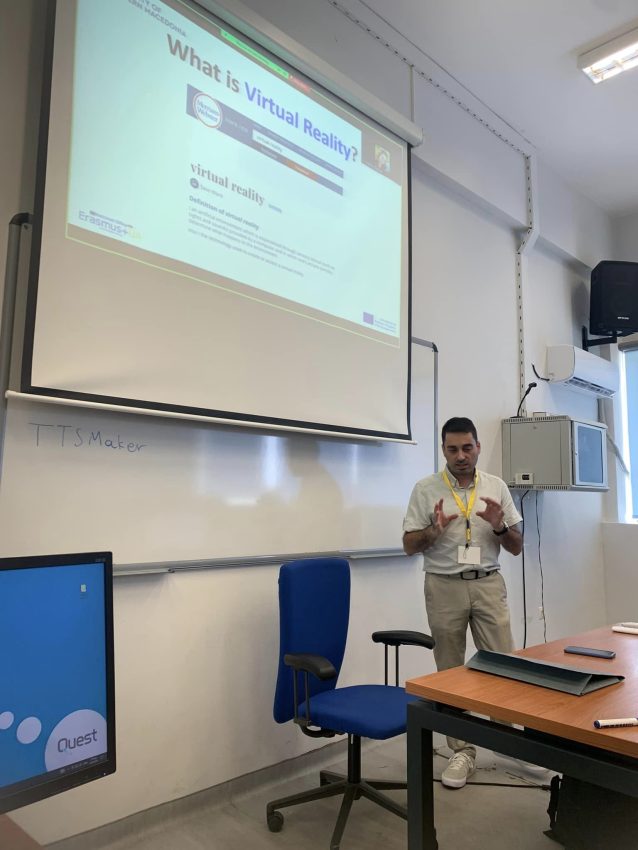
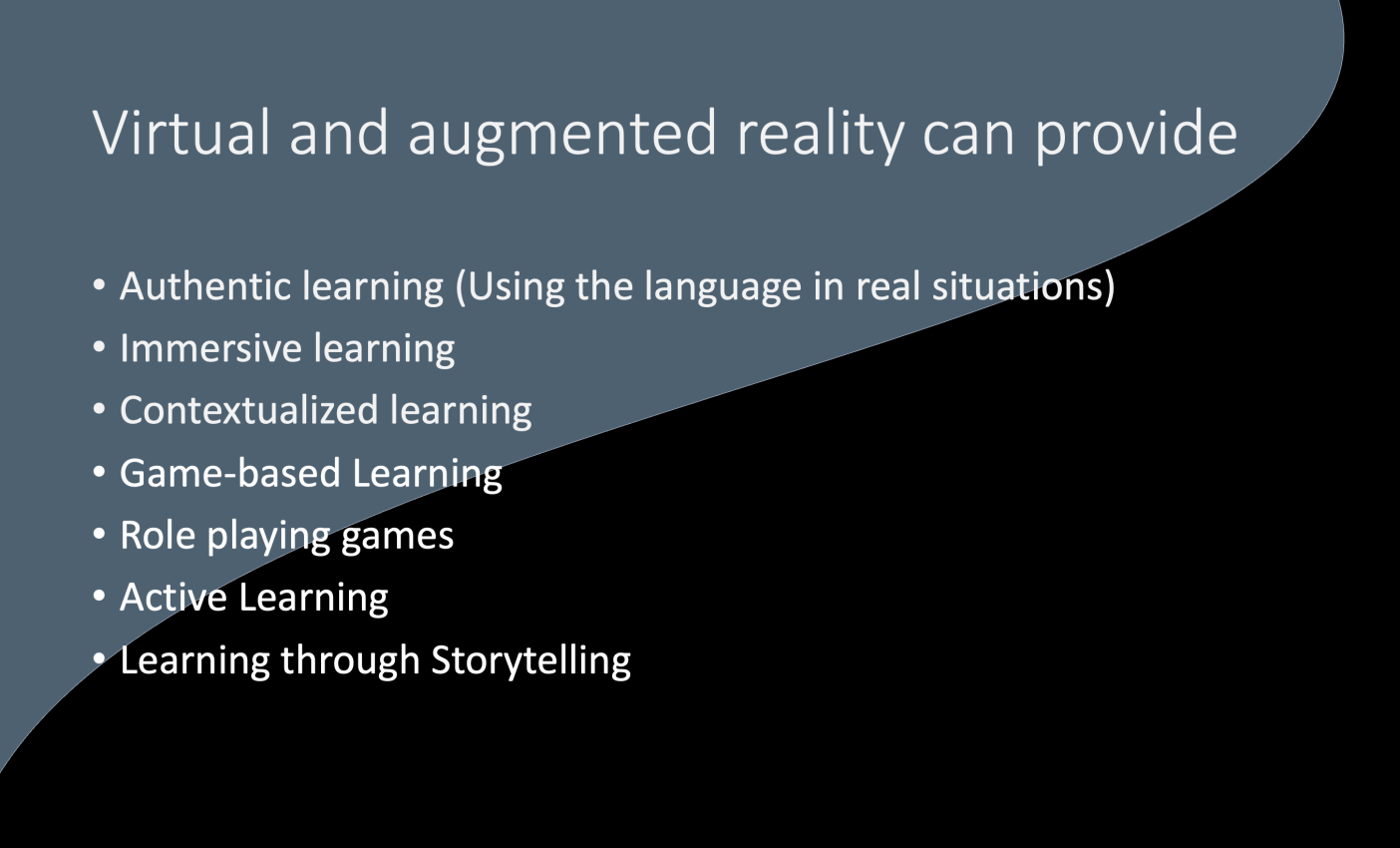
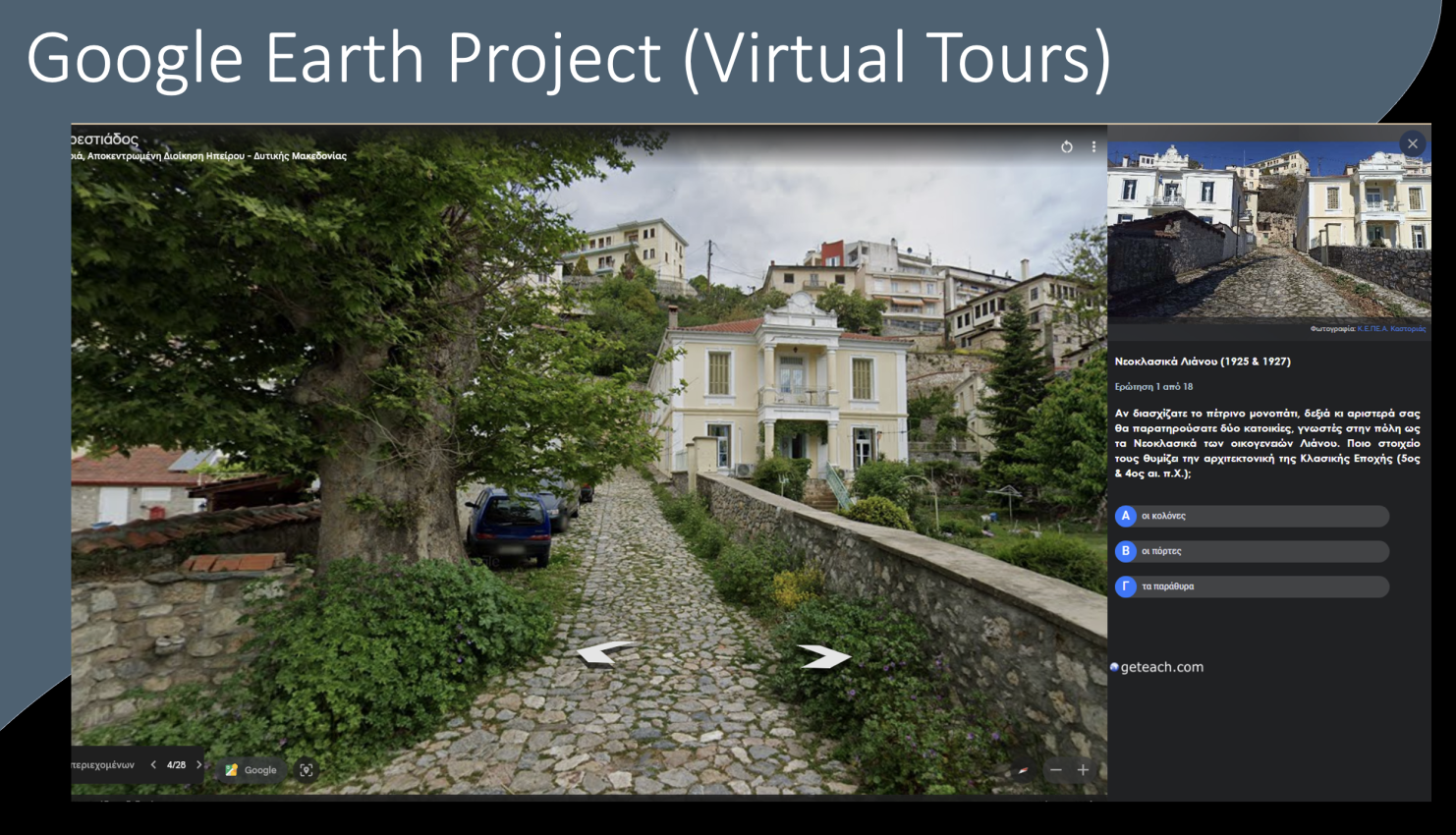
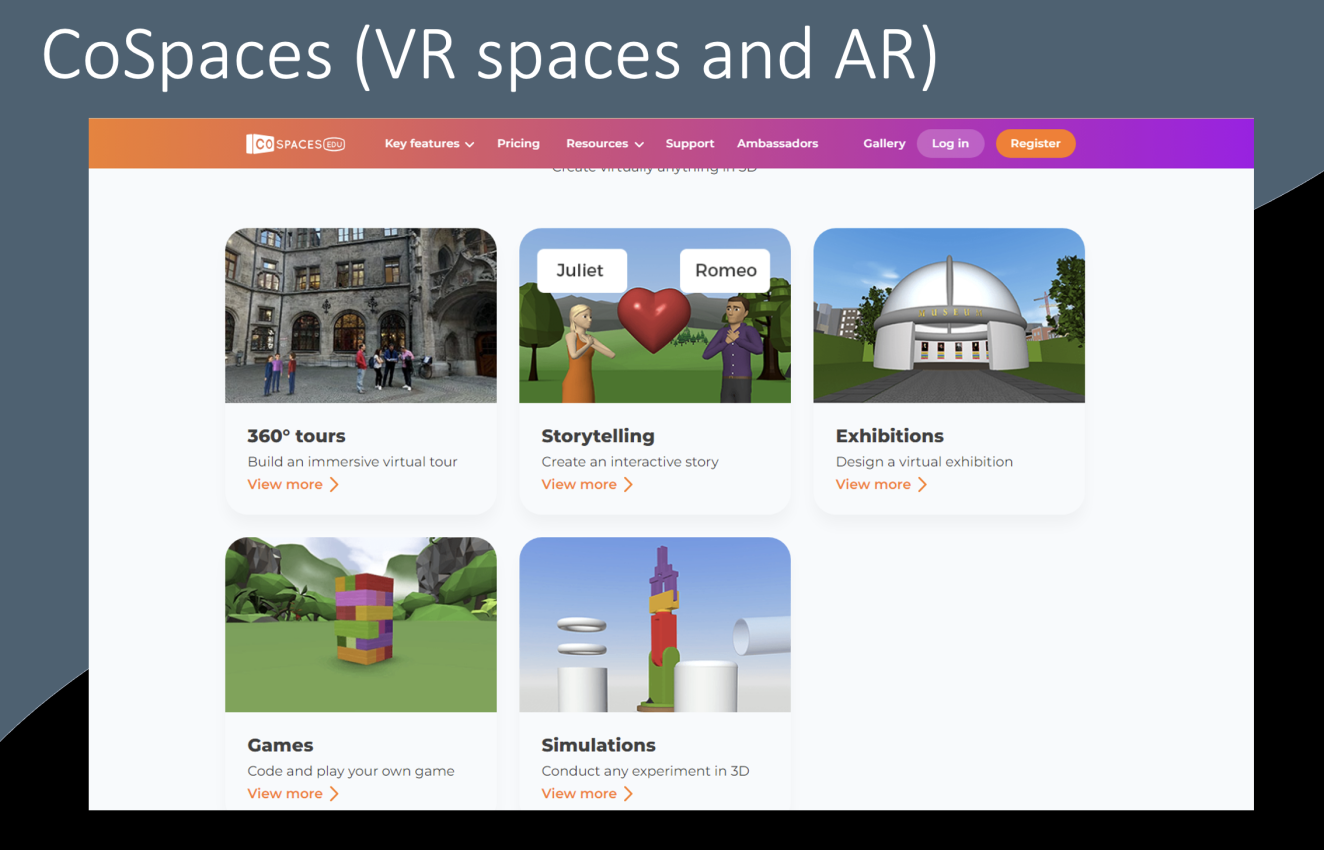
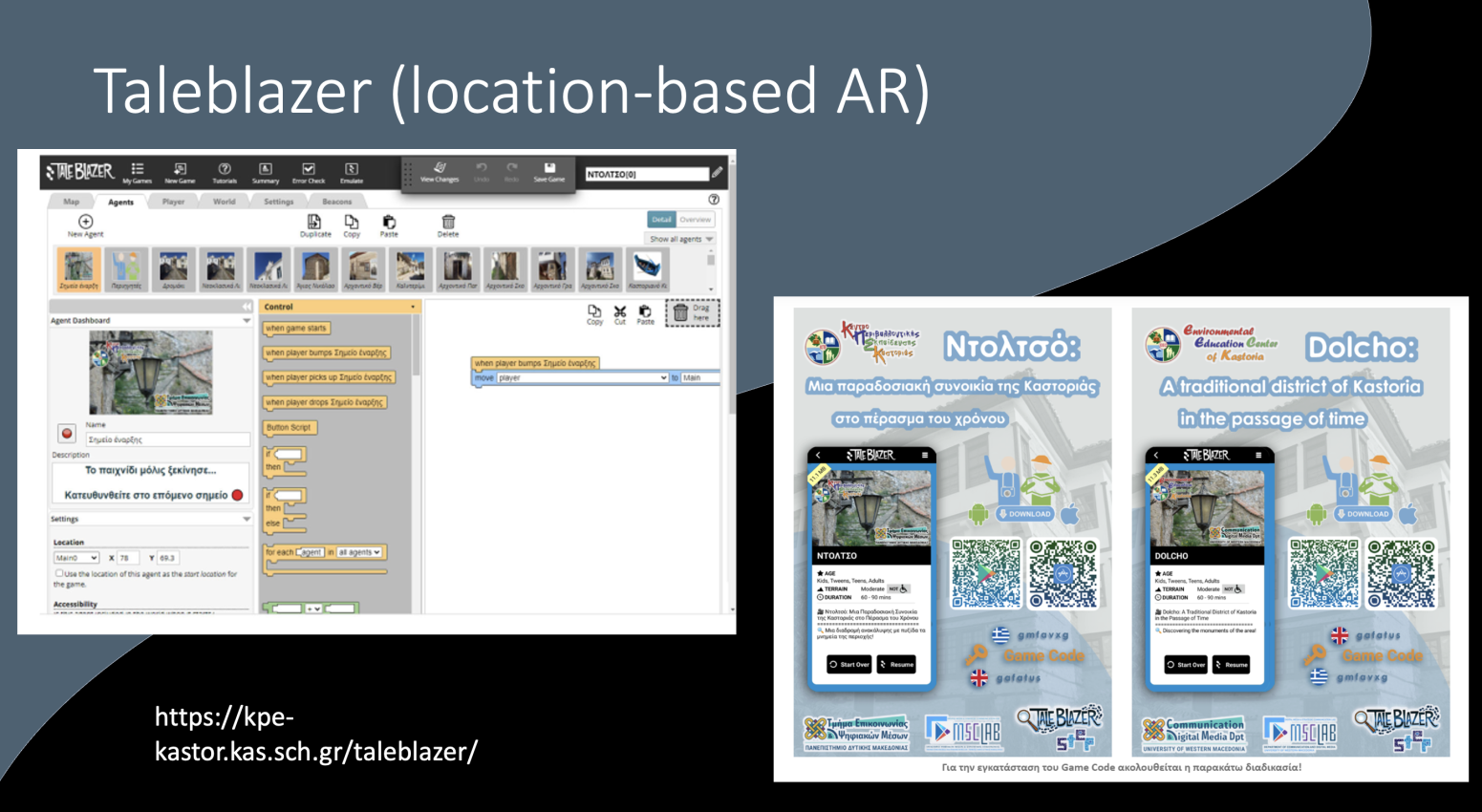
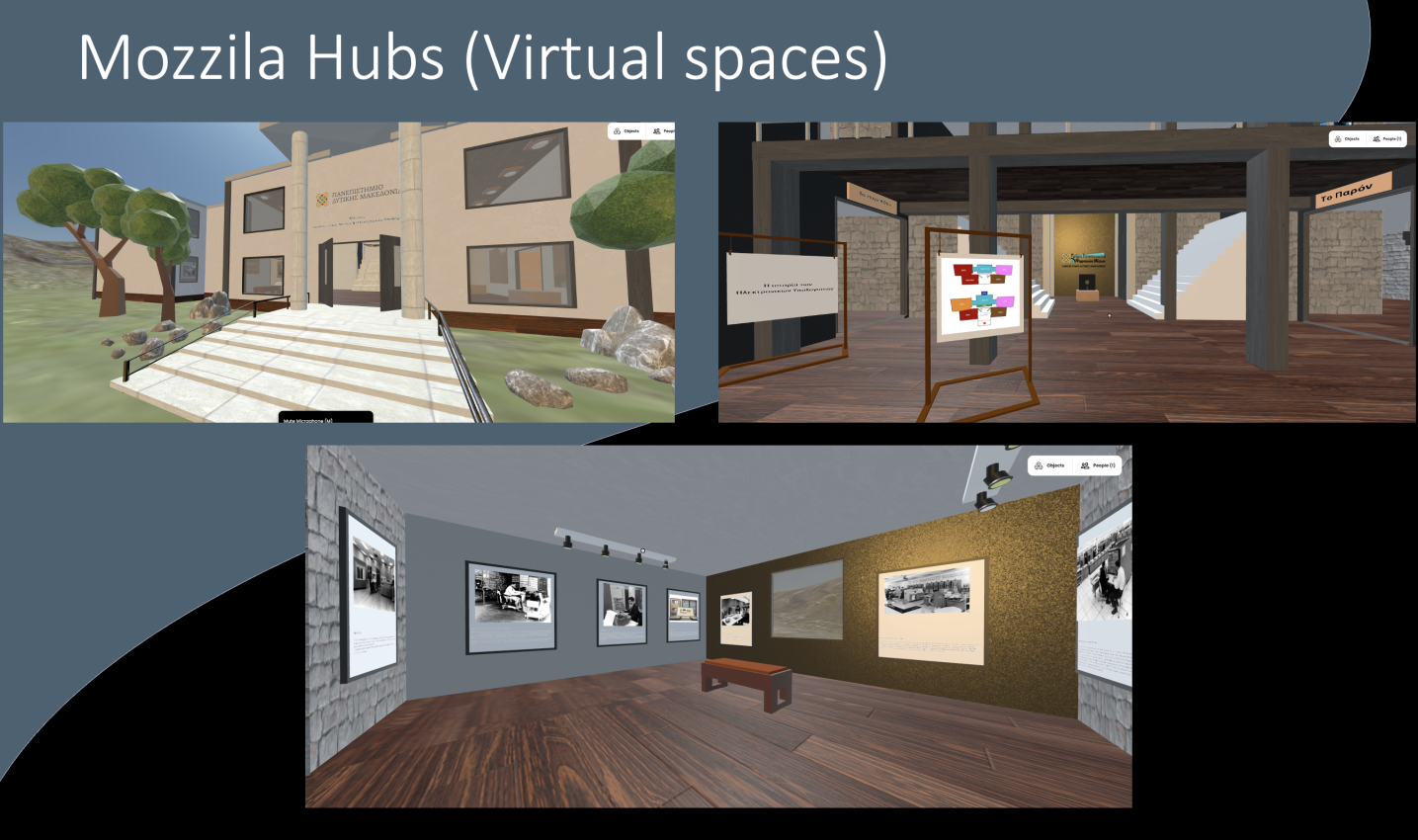
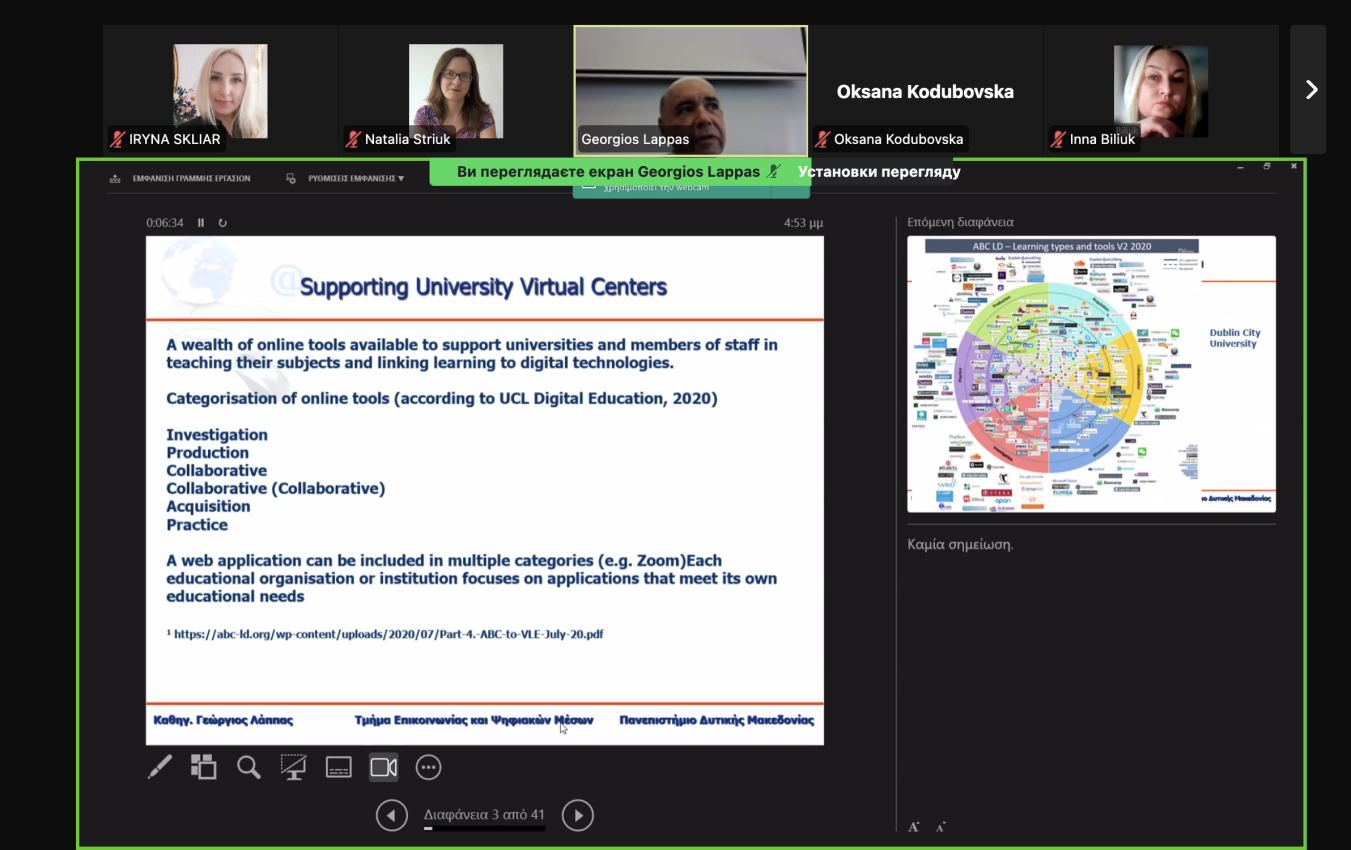
Day 3.
Training "Digital games and interactive classes" with Chrysa Markou was aimed at getting acquainted with modern methods of using digital games in the educational process.
At the training "Digital Storytelling - Creative Storytelling" with Maria Matsiola, which consisted of two parts, the listeners learned about different techniques for creating storytelling using digital tools.
The participants visited the Immersive Lab, familiarized themselves with the features of using virtual and augmented reality devices in the educational process. Using VR and AR reality, students will be able to go on virtual tours and explore the countries with which this or that language is connected.
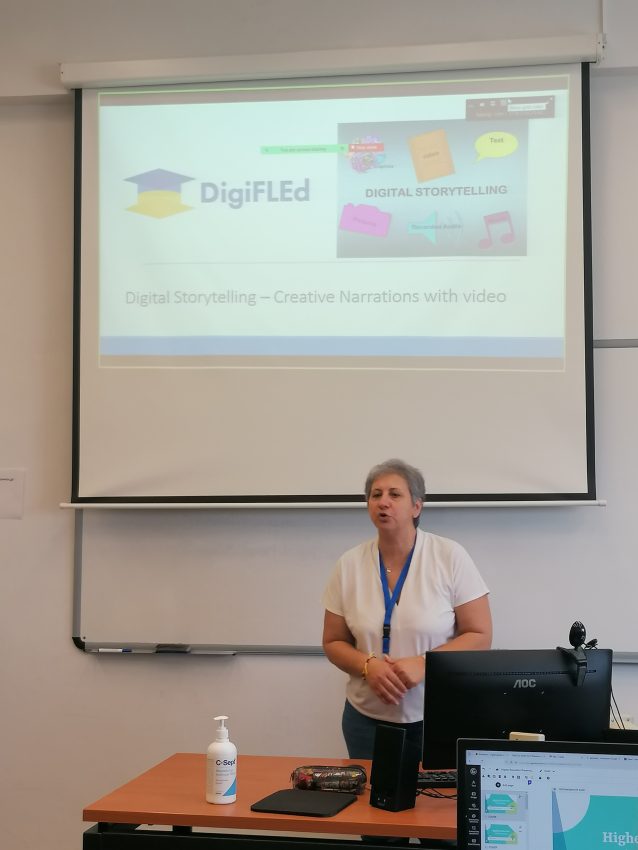
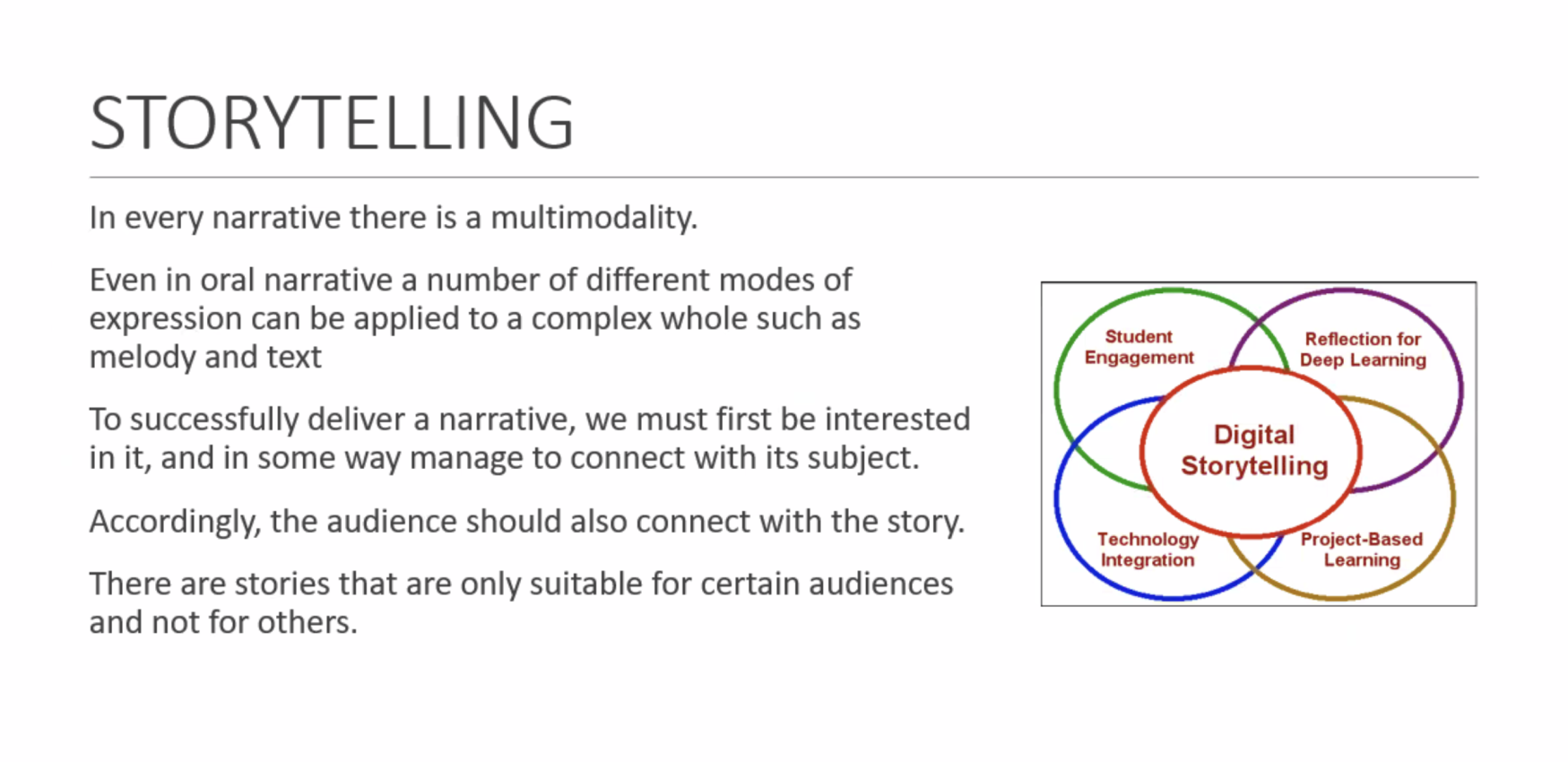
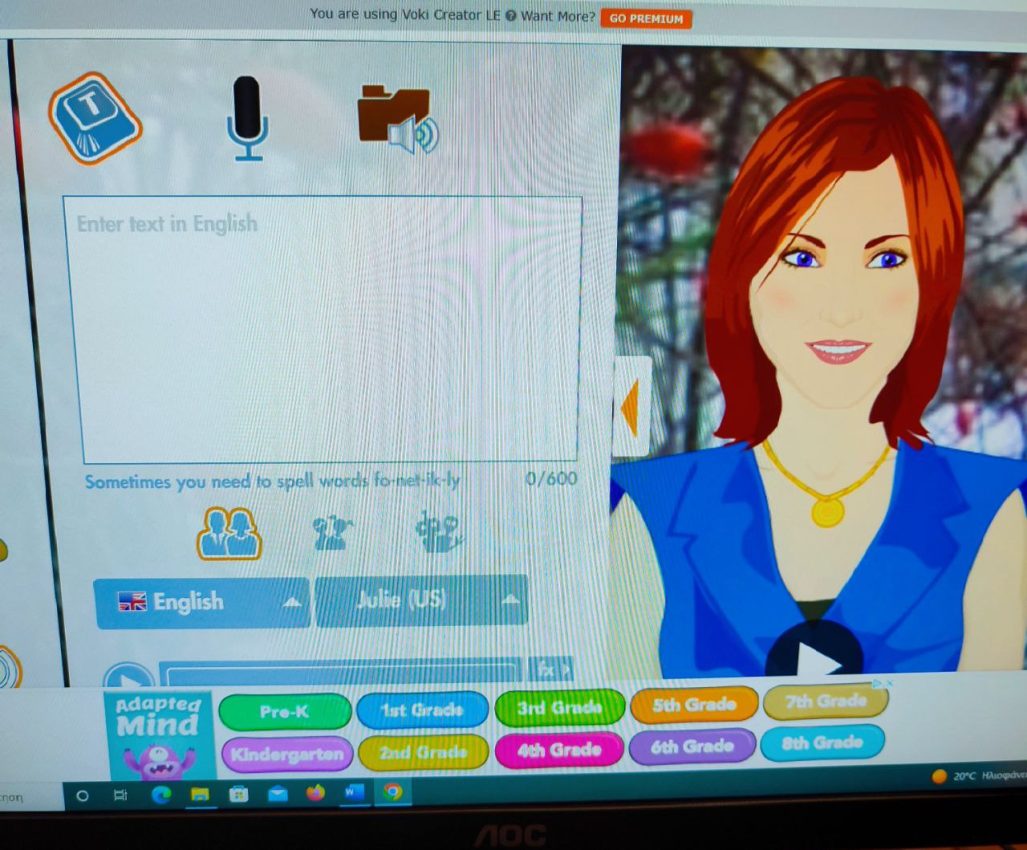
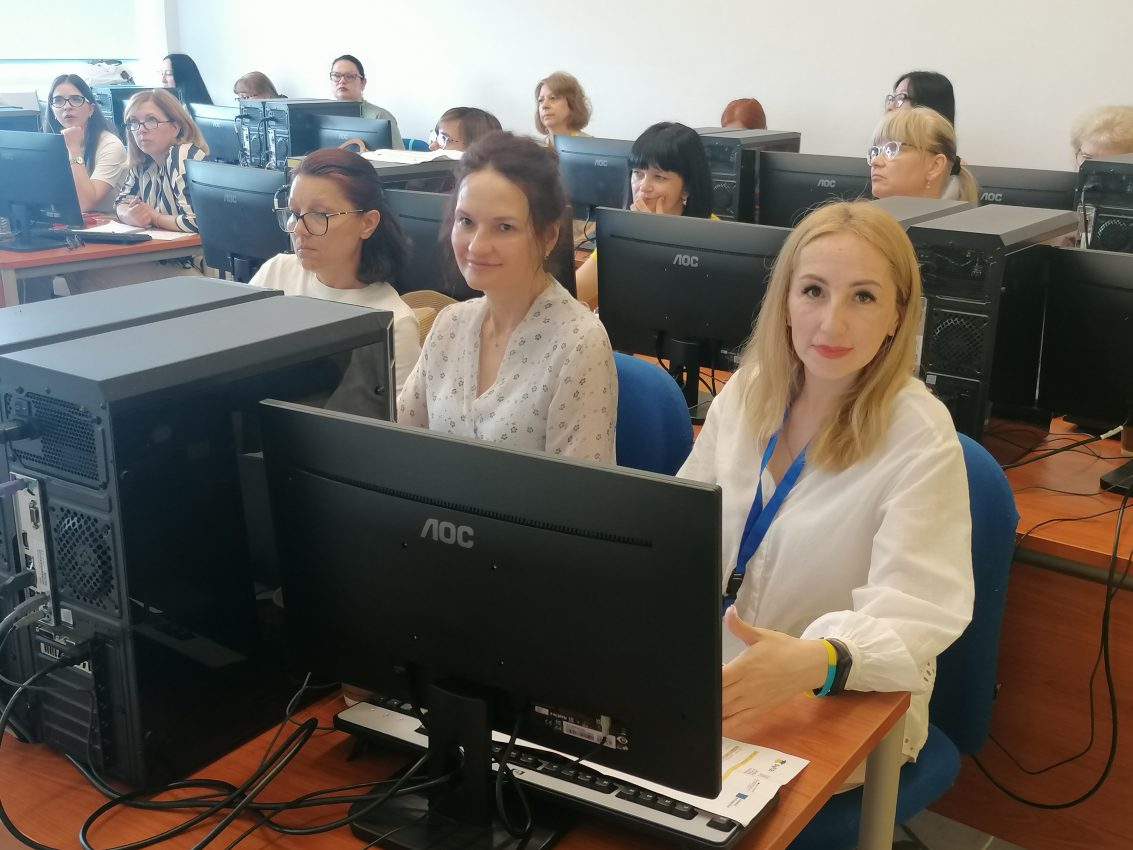
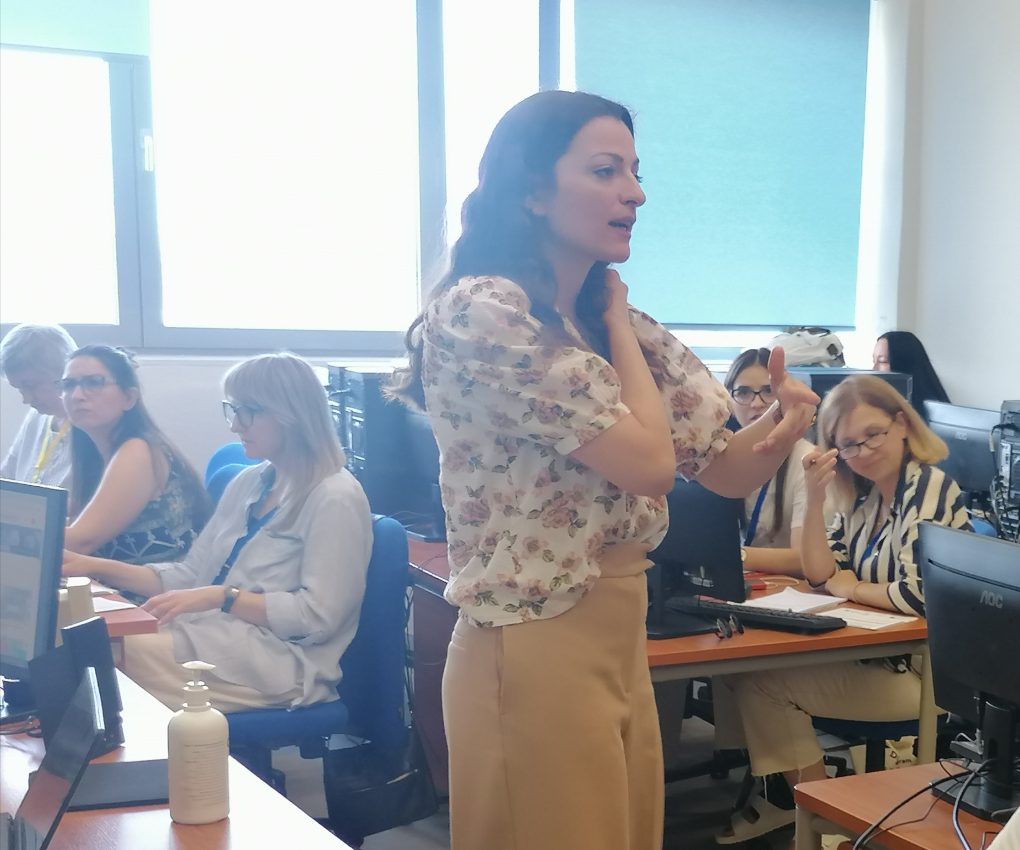
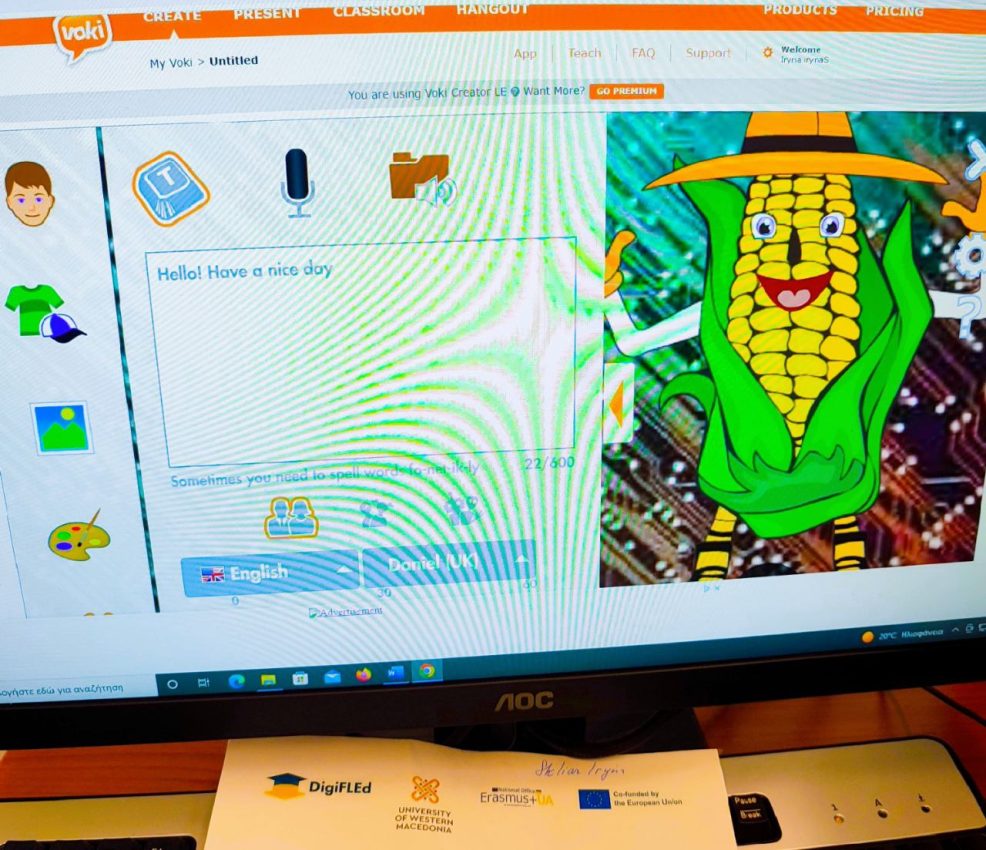
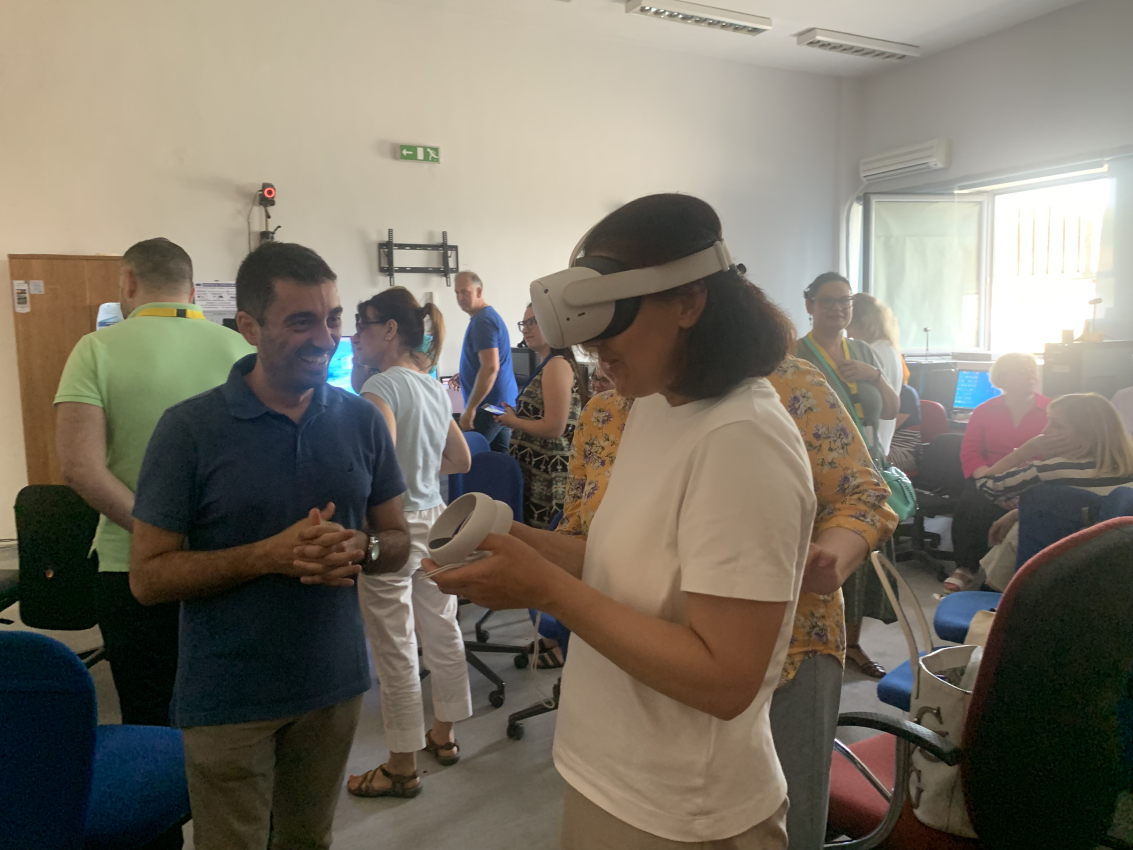


Day 4.
The second part of the training "Digital Storytelling - Creative Storytelling" was devoted to its structural elements: theme, purpose, characters, locations, distribution methods, etc. Maria Matsiola focused in detail on audiovisual narratives that attract special attention of the audience - camera angles, soundtrack, lighting. Training participants practiced creating their own stories, worked technically with video and sound.
Georgios Lappas got acquainted with the basics of creating websites, focused on Google Sites in more detail. The modern design and flexibility of Google Sites blocks makes it convenient and appropriate to use for educational content.
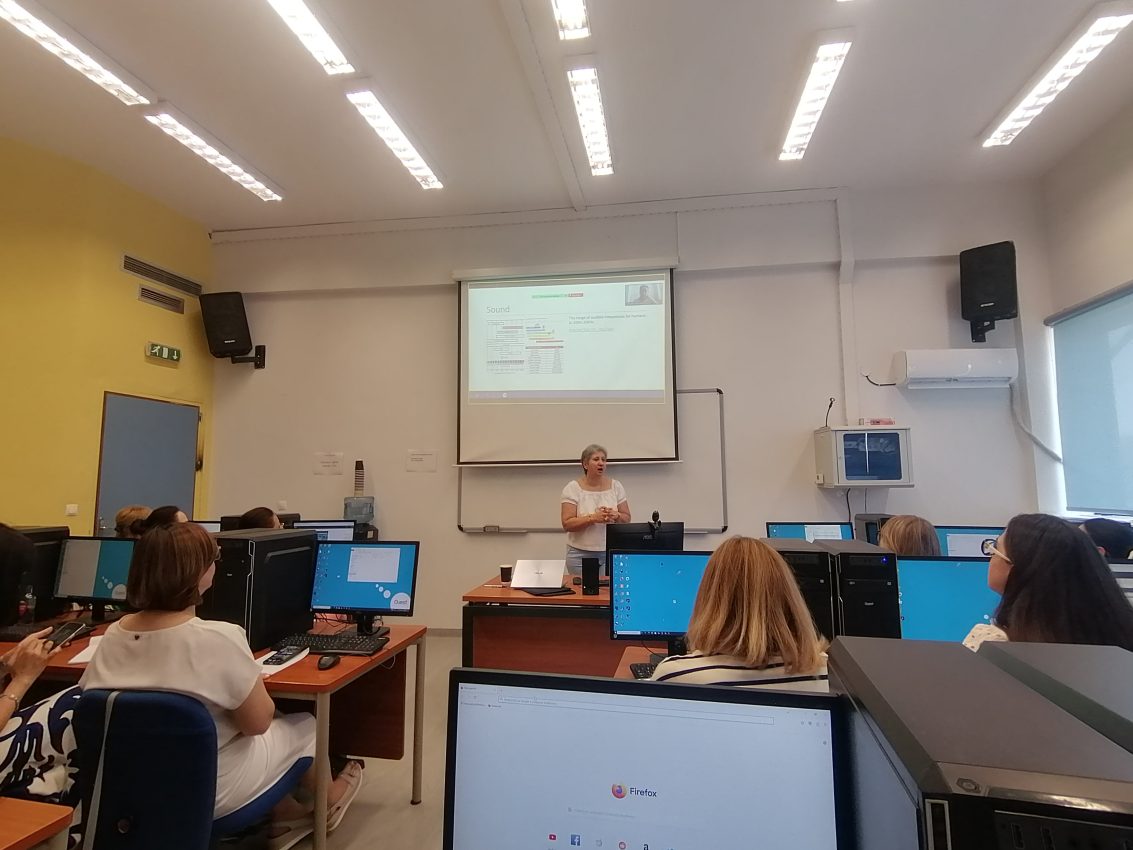
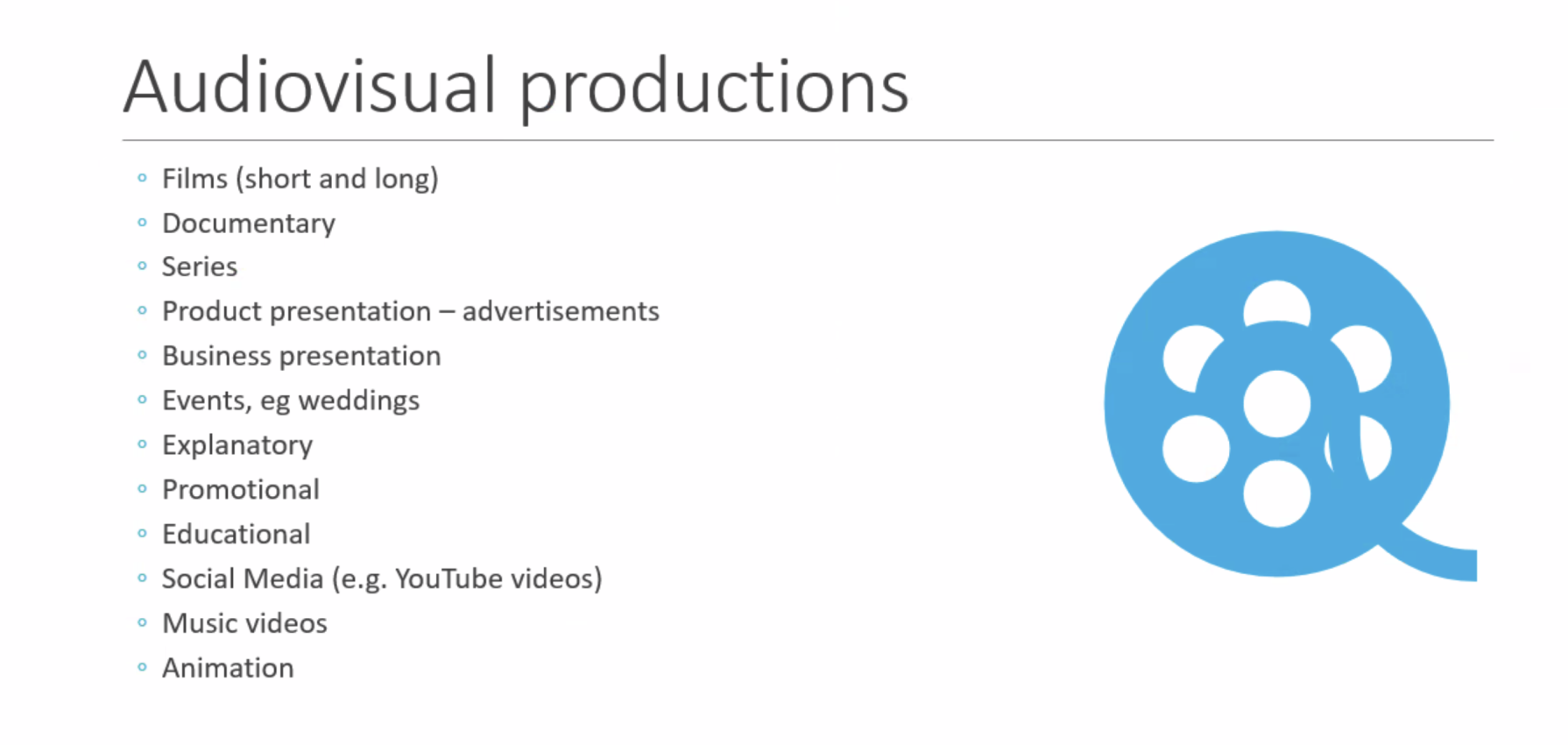
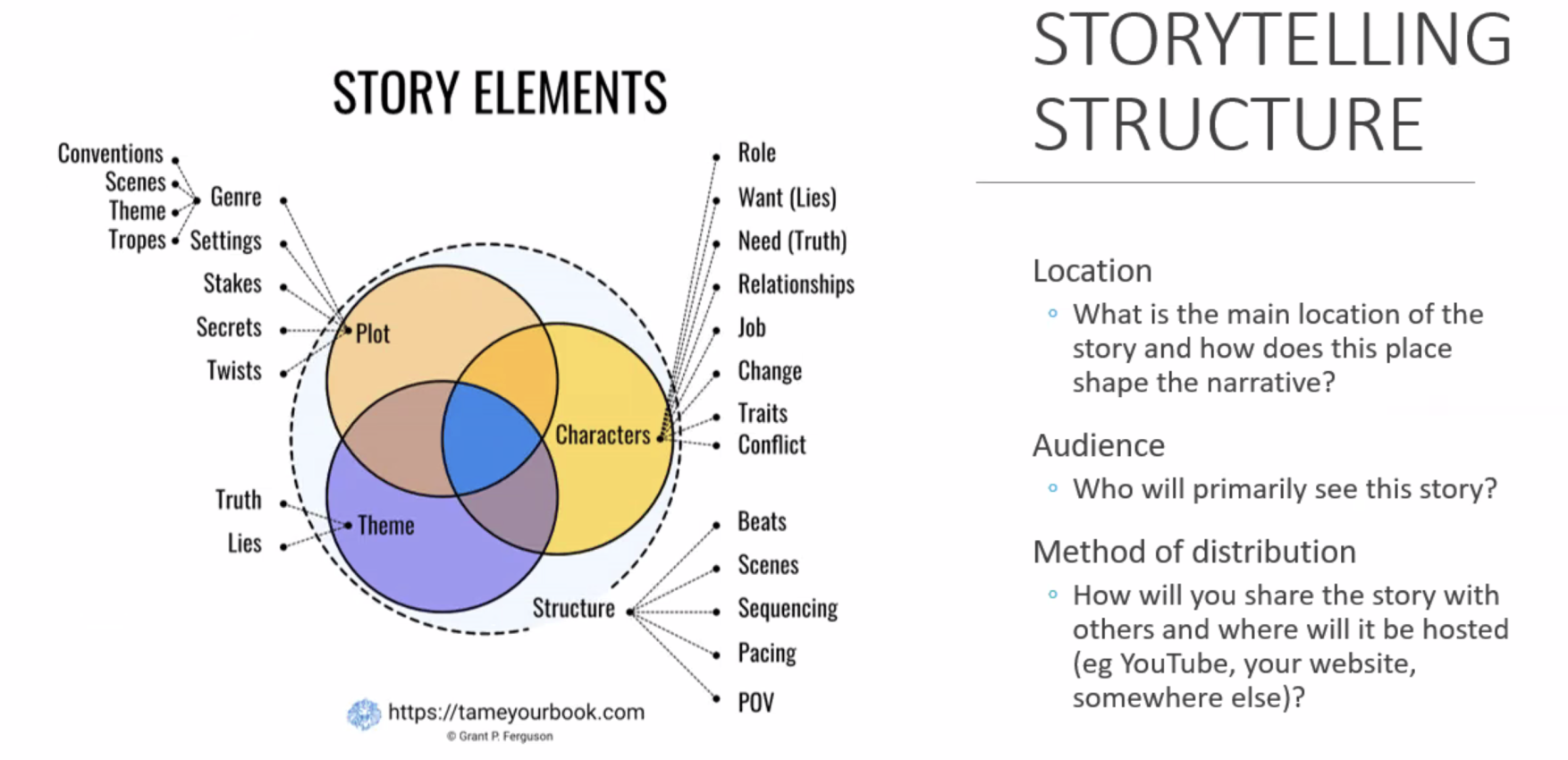
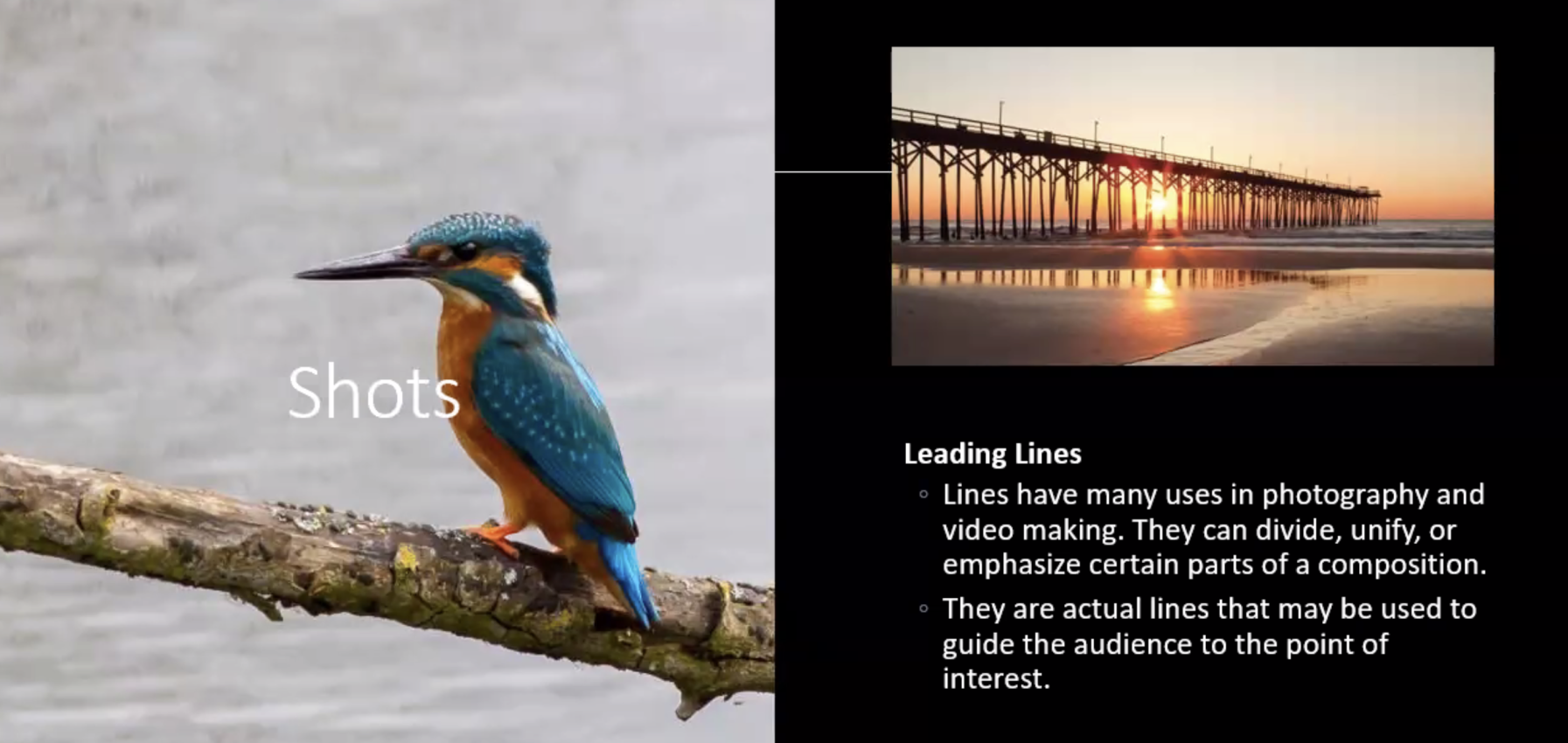
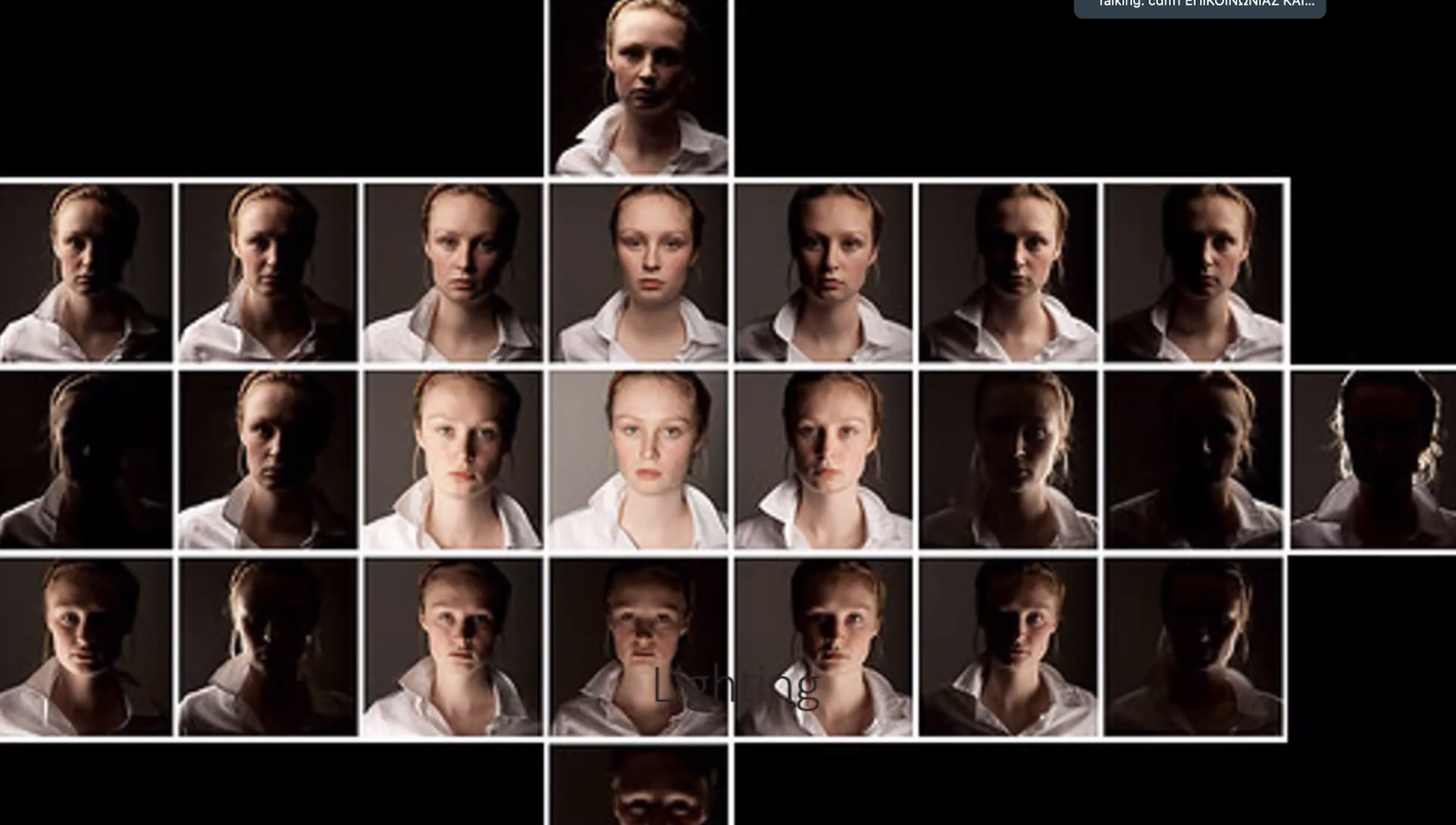
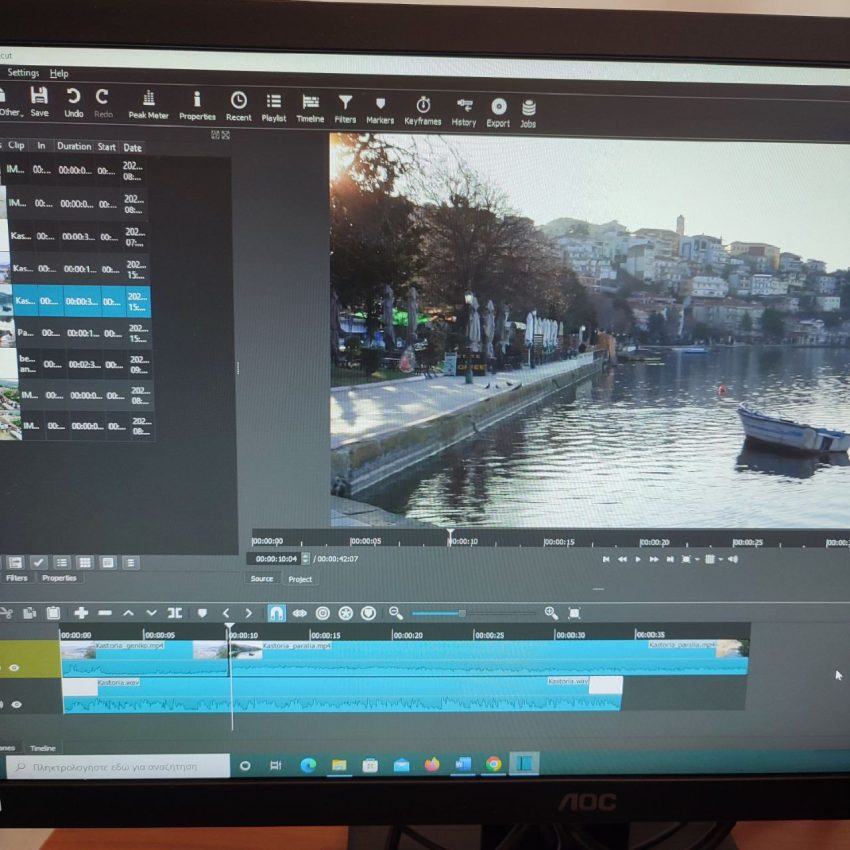
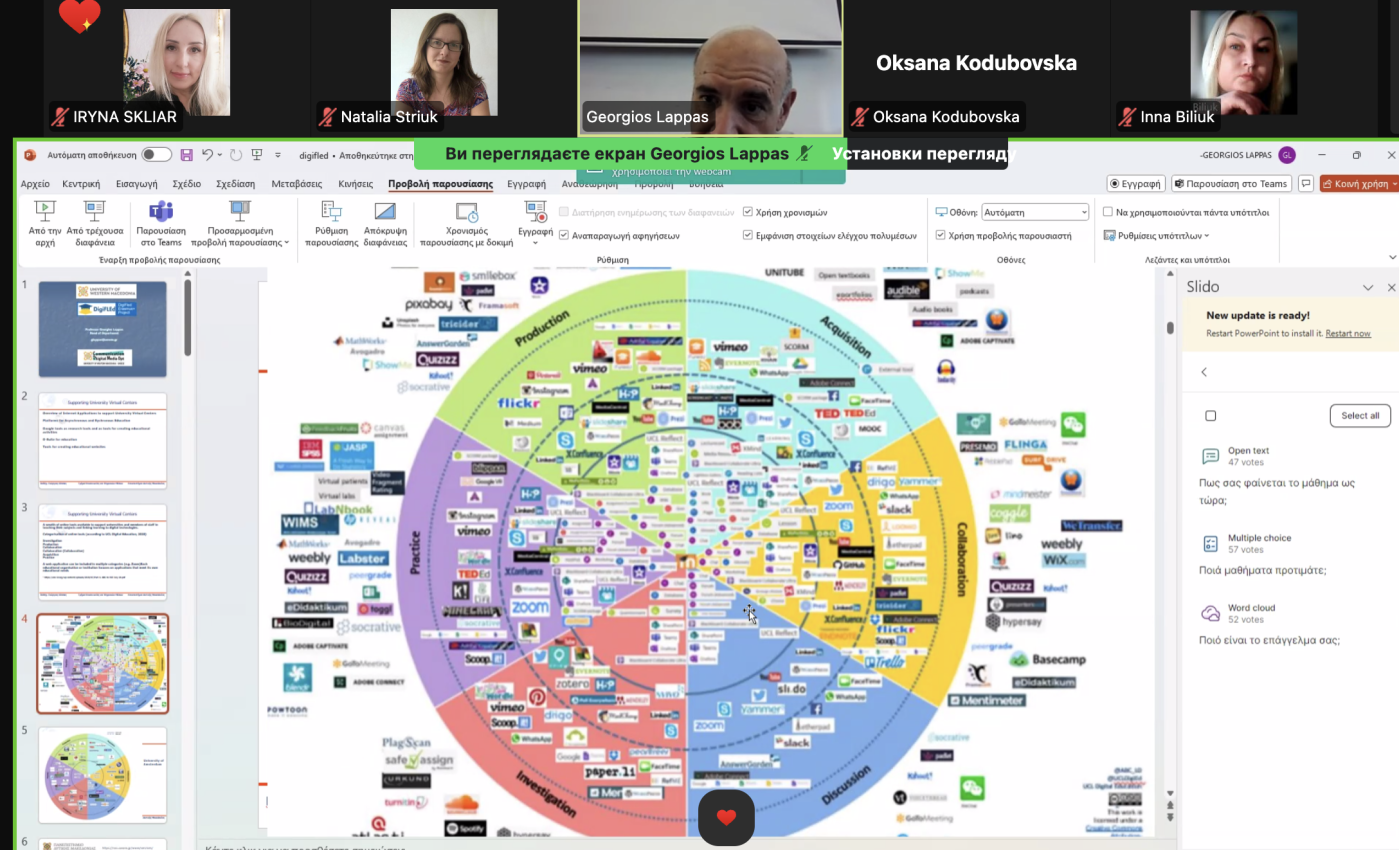
Day 5.
At the trainings of the fifth school day Chrysa Markou introduced the participants to artificial intelligence tools and various educational platforms. Voki for Education, Quizizz, Gennially, Gemini attracted special attention. They are used in education as personalized learning tools, engagement tools, assessment tools, speech synthesis and language translation tools, etc.
At the final meeting of the study visit, the participants-partners exchanged impressions and discussed the results of the visit.
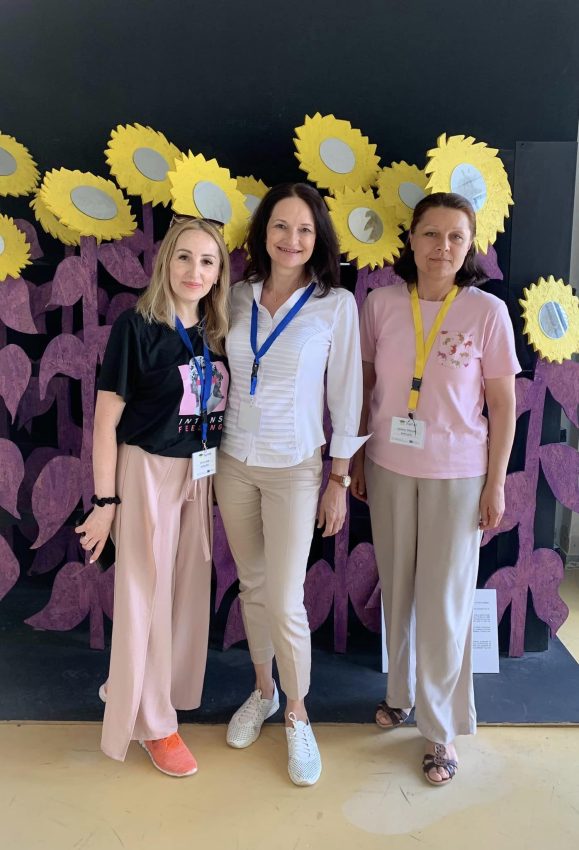
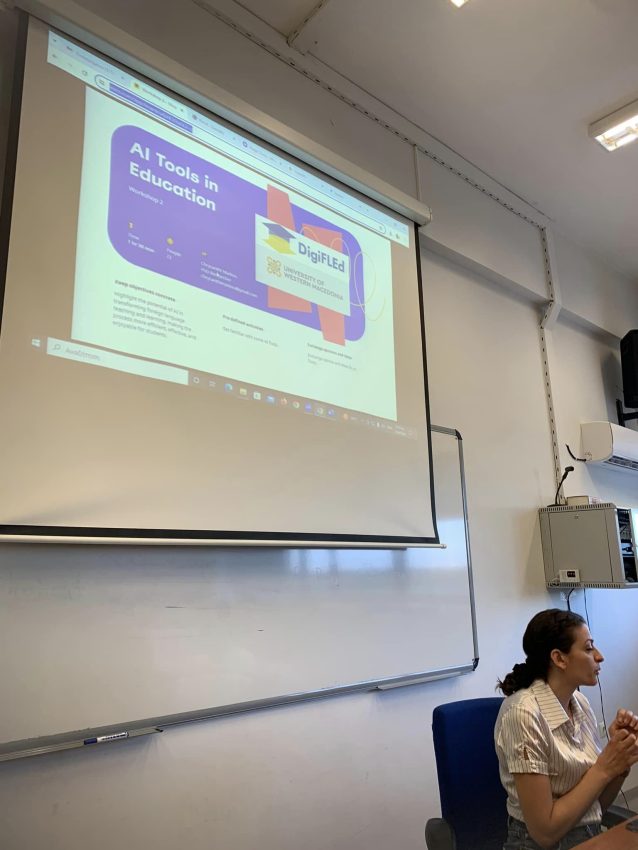
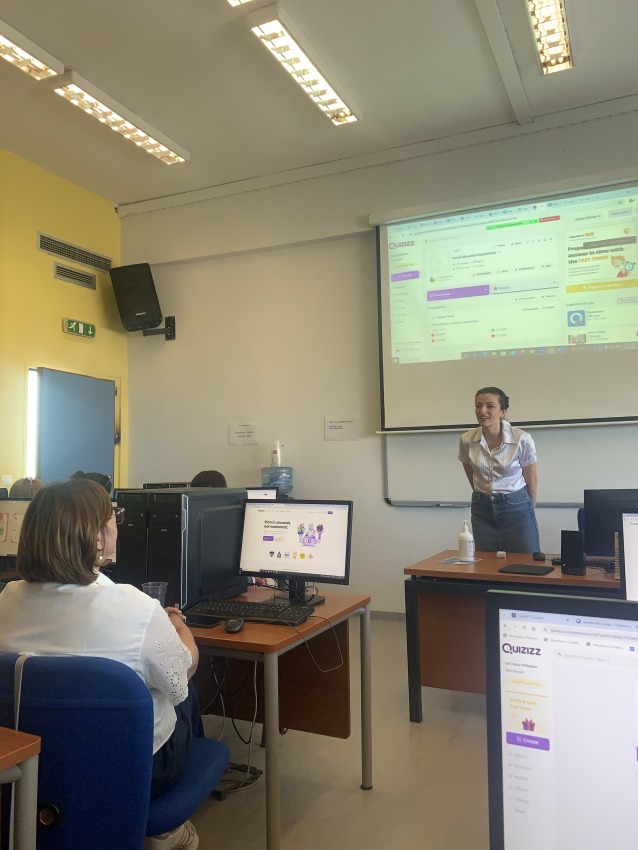
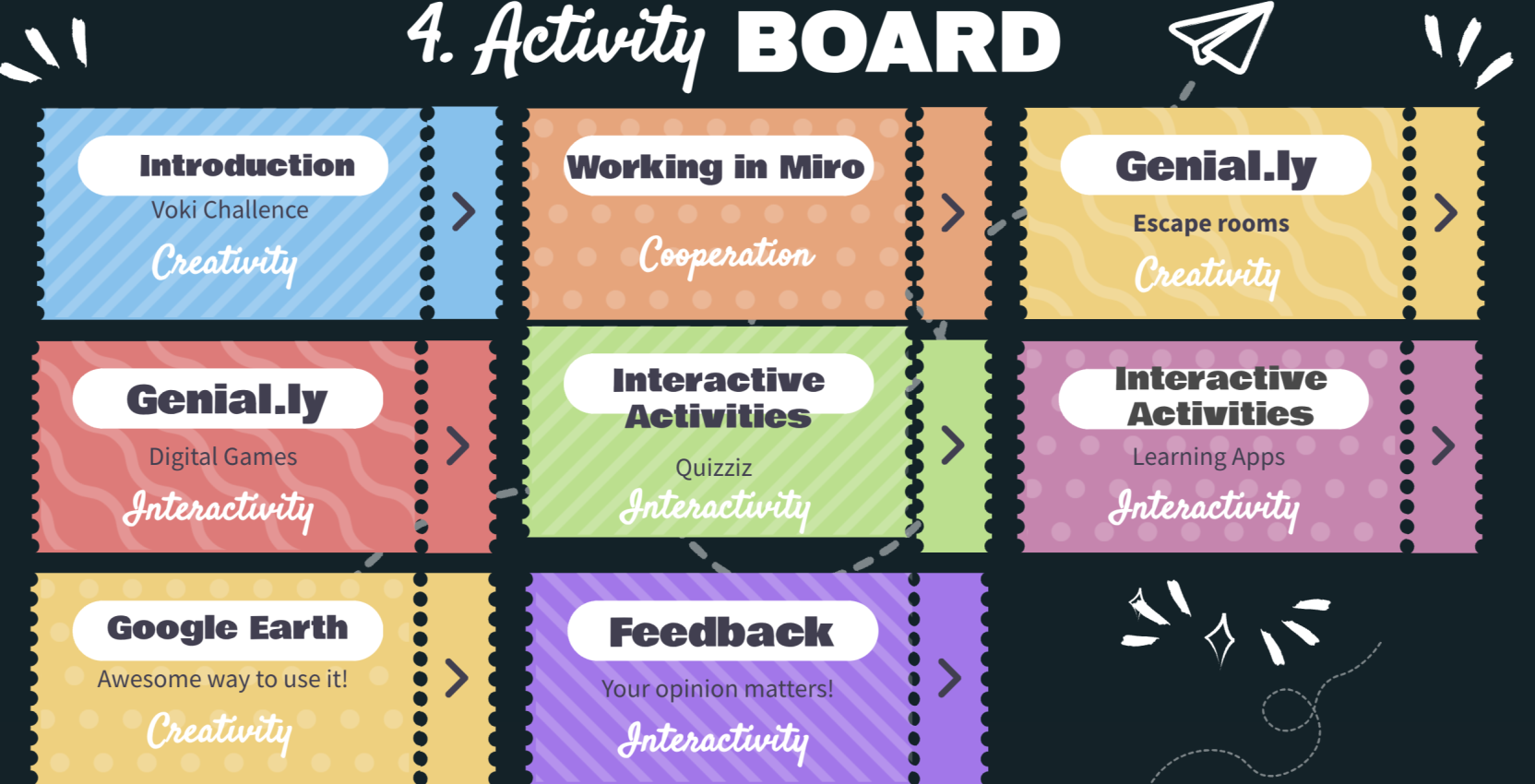
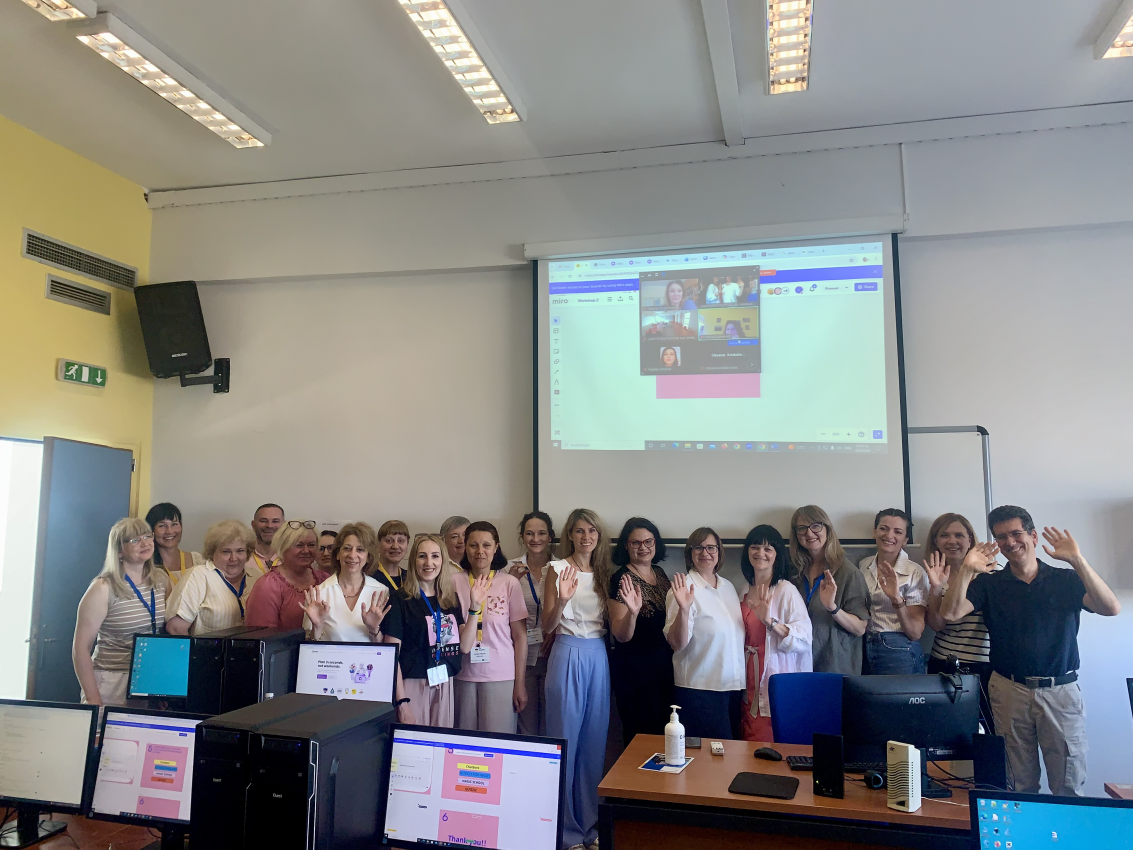
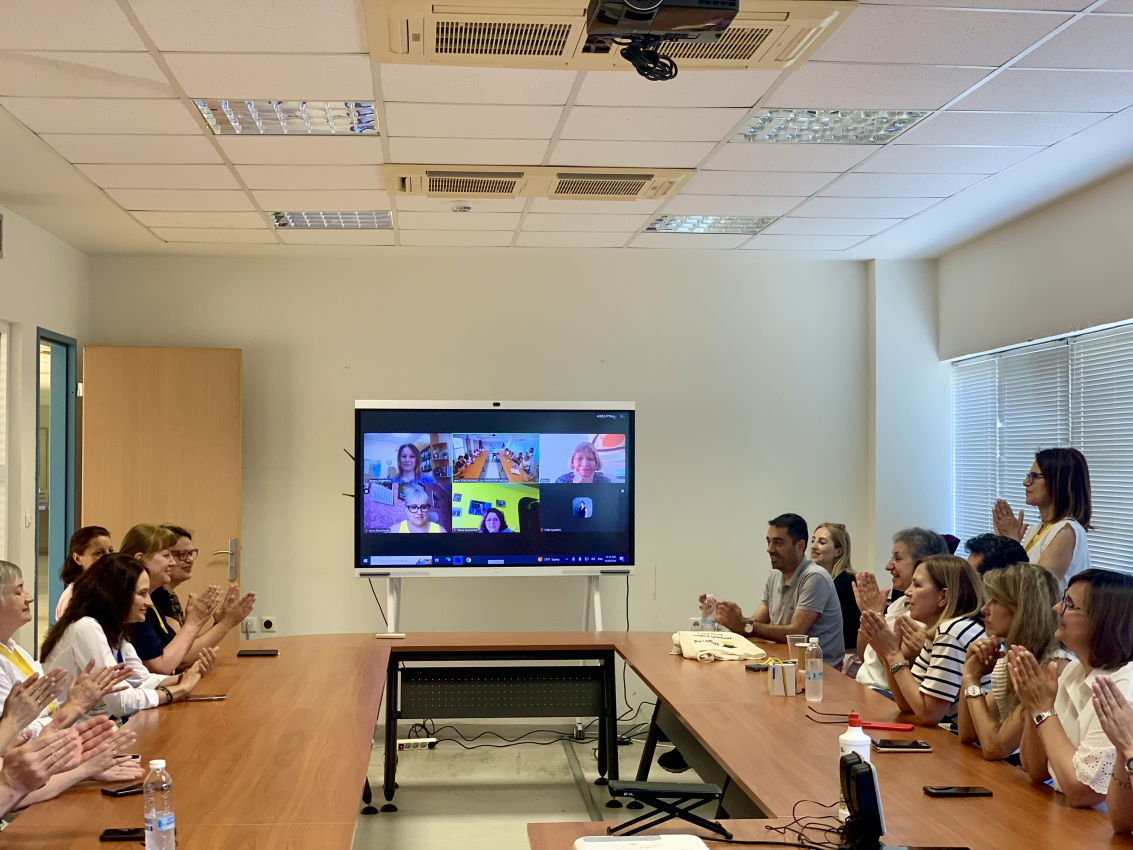
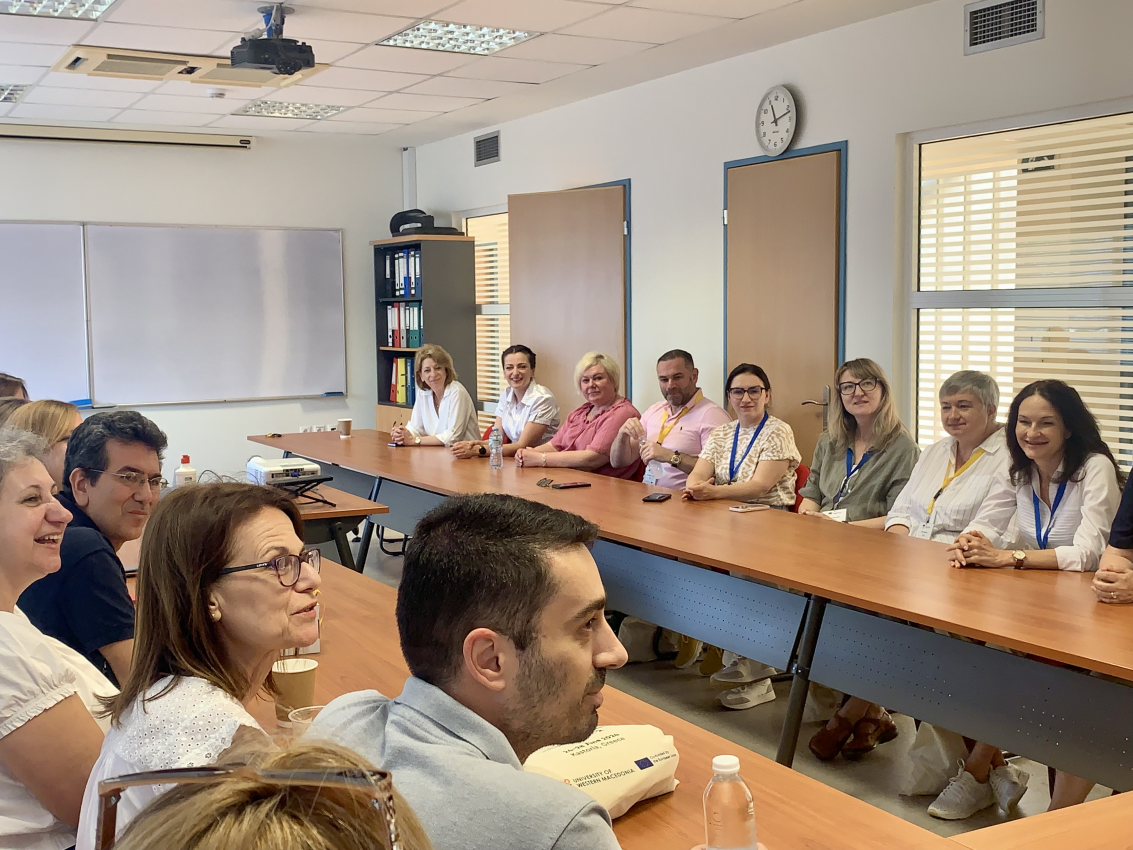
Cultural component of the project was organically connected with the subject of educational classes. A tour of the old city of Kastoria, an "interactive tour" of the aquarium, a trip to the prehistoric settlement of Limnaion were accompanied by the use of mobile applications with elements of augmented reality. This allowed the participants not only to enjoy the warm atmosphere of the city, but also to see how technology can be used to create exciting educational spaces.
The Dragon Cave, which was also visited by the participants of the study visit, is one of the most amazing caves in the Balkans. It stretches for a 300-meter route, where visitors could admire impressive stalactites and stalagmites.
Kastoria's museums, in particular the Byzantine and archaeological museums, deserve special attention. Restored icons are stored in the Byzantine Museum. Kastoria is considered an important center of Byzantine and post-Byzantine icon painting. The Archaeological Museum preserves finds from the early Iron Age to Roman times.
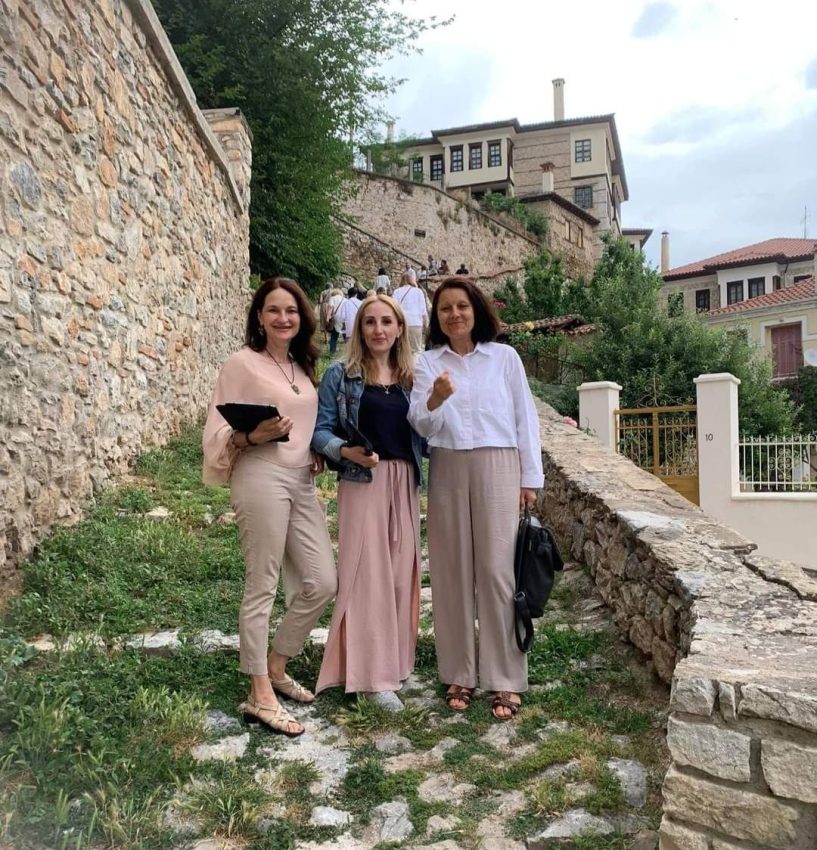

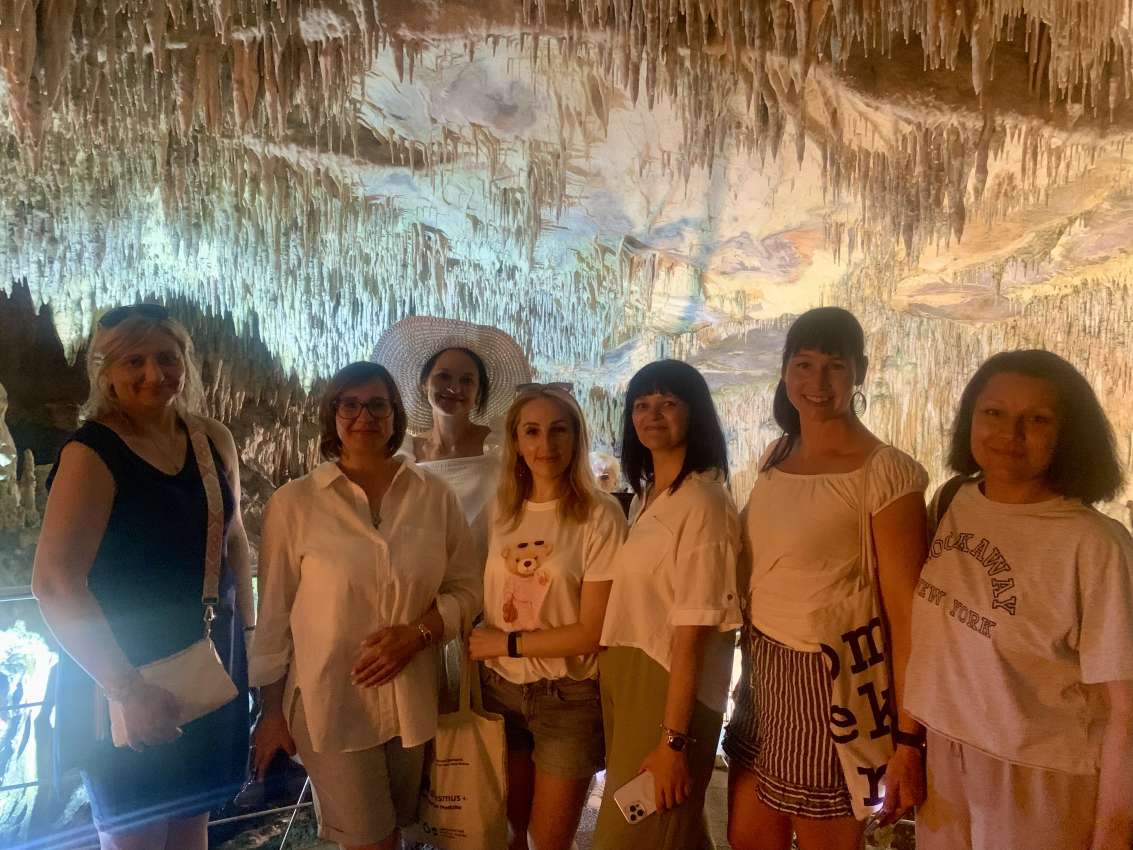
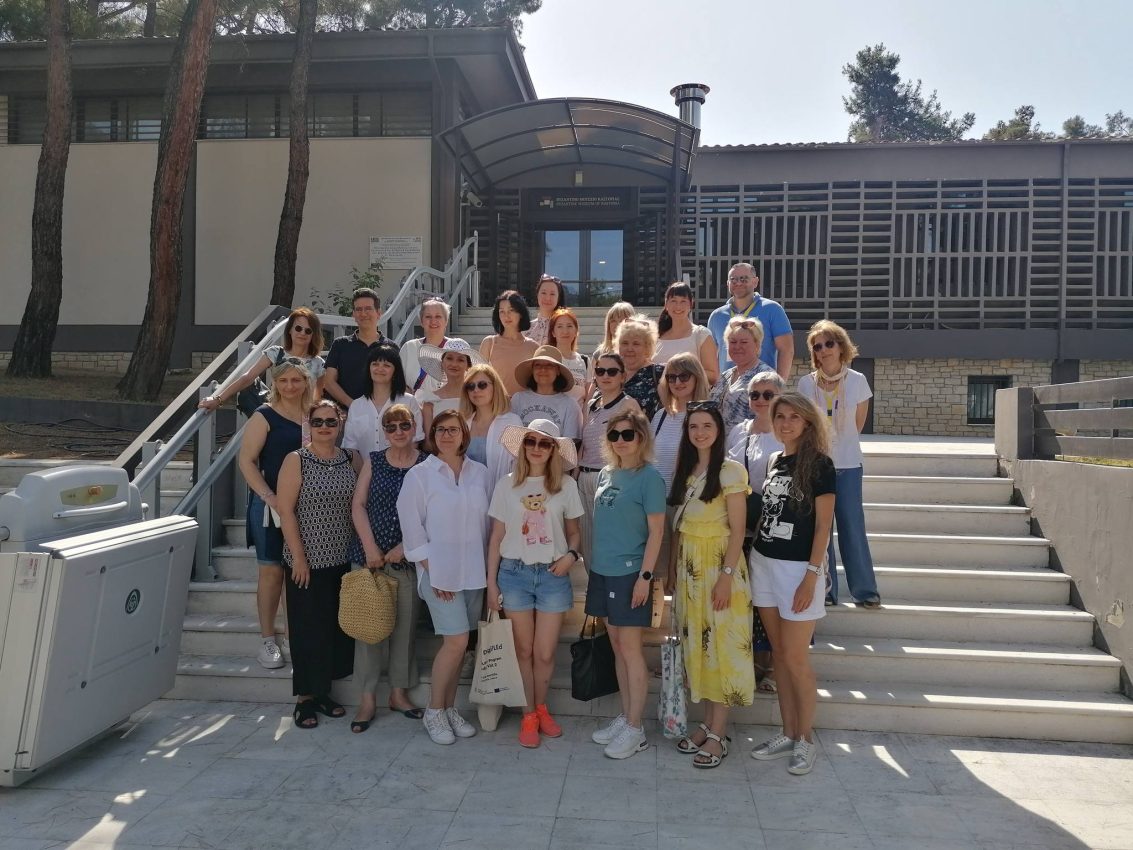
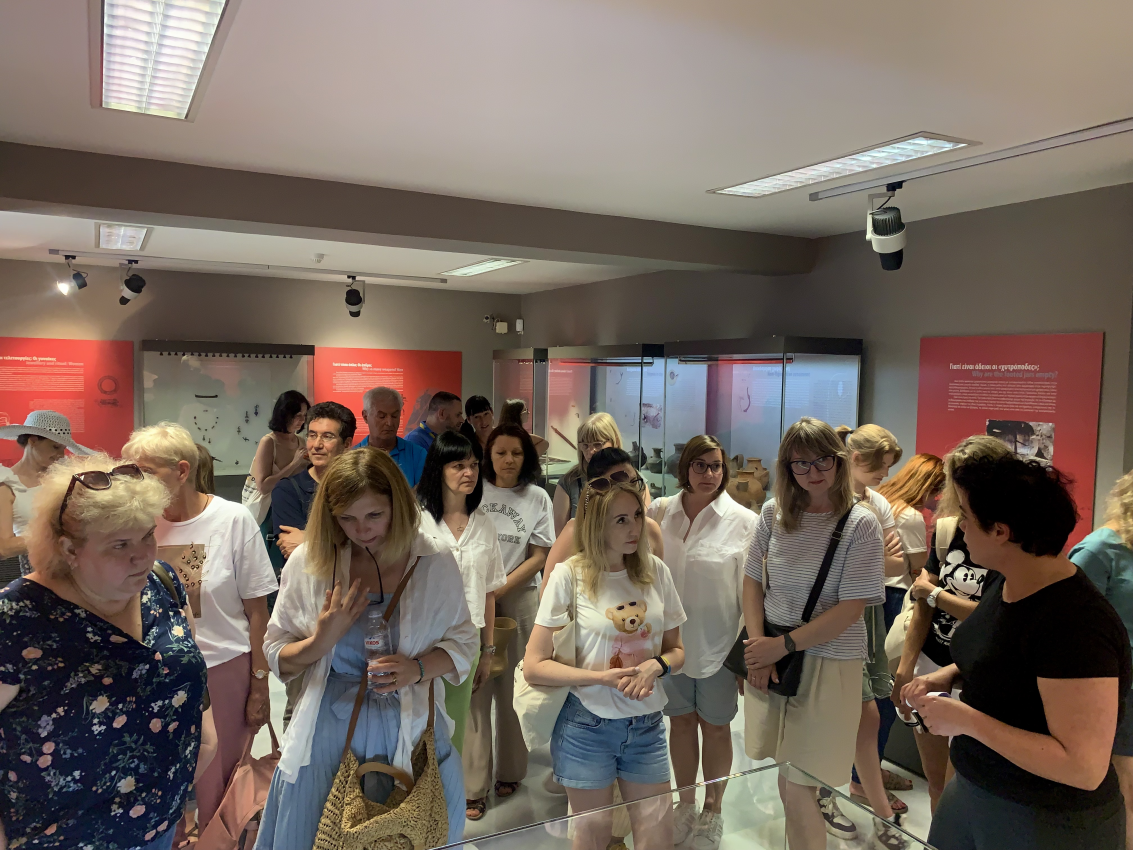
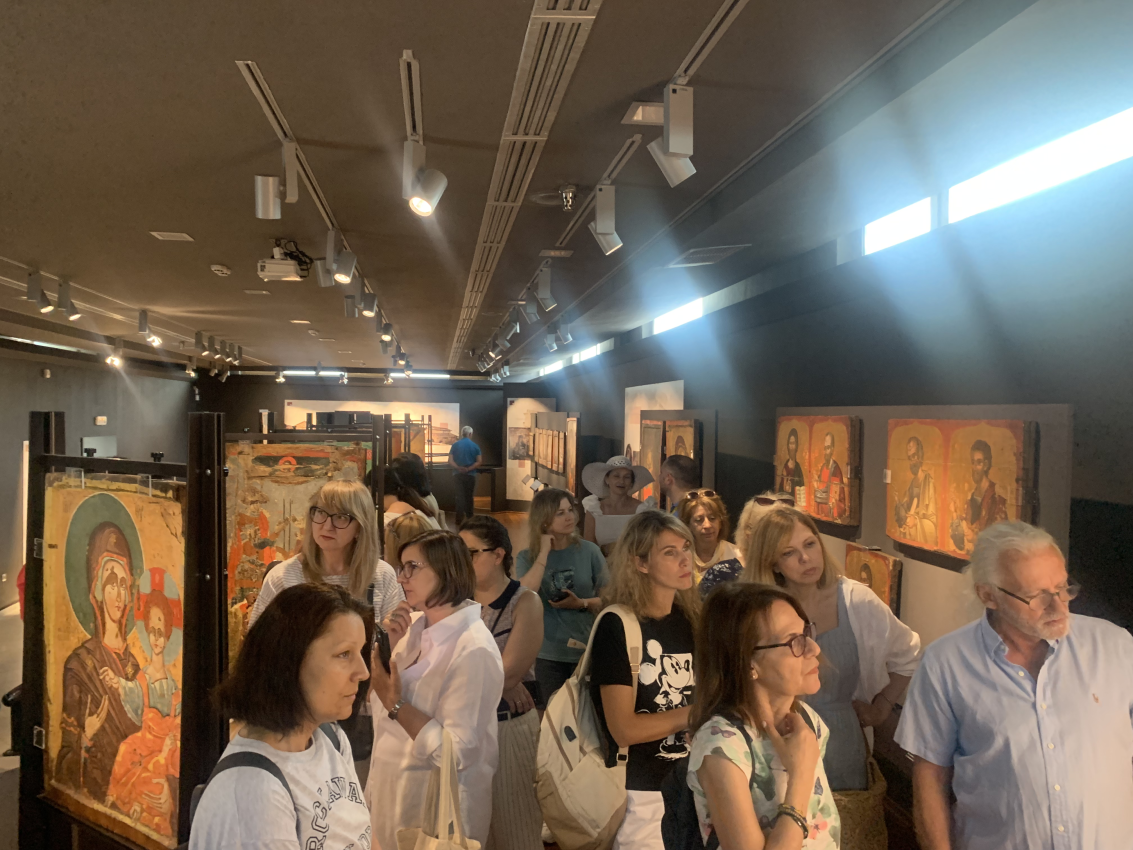
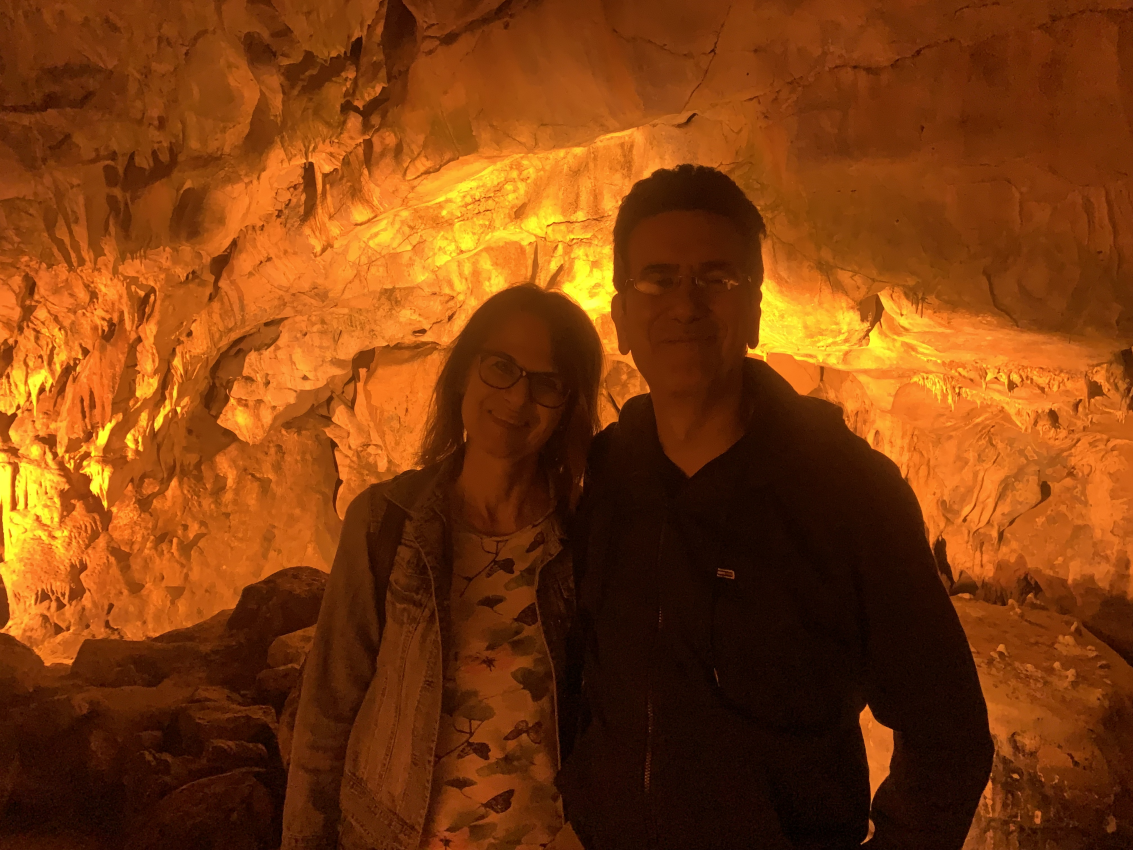
We are sincerely grateful to the team of the University of Western Macedonia for the excellent organization of events and unforgettable impressions!
Greece conquered immediately and forever!

